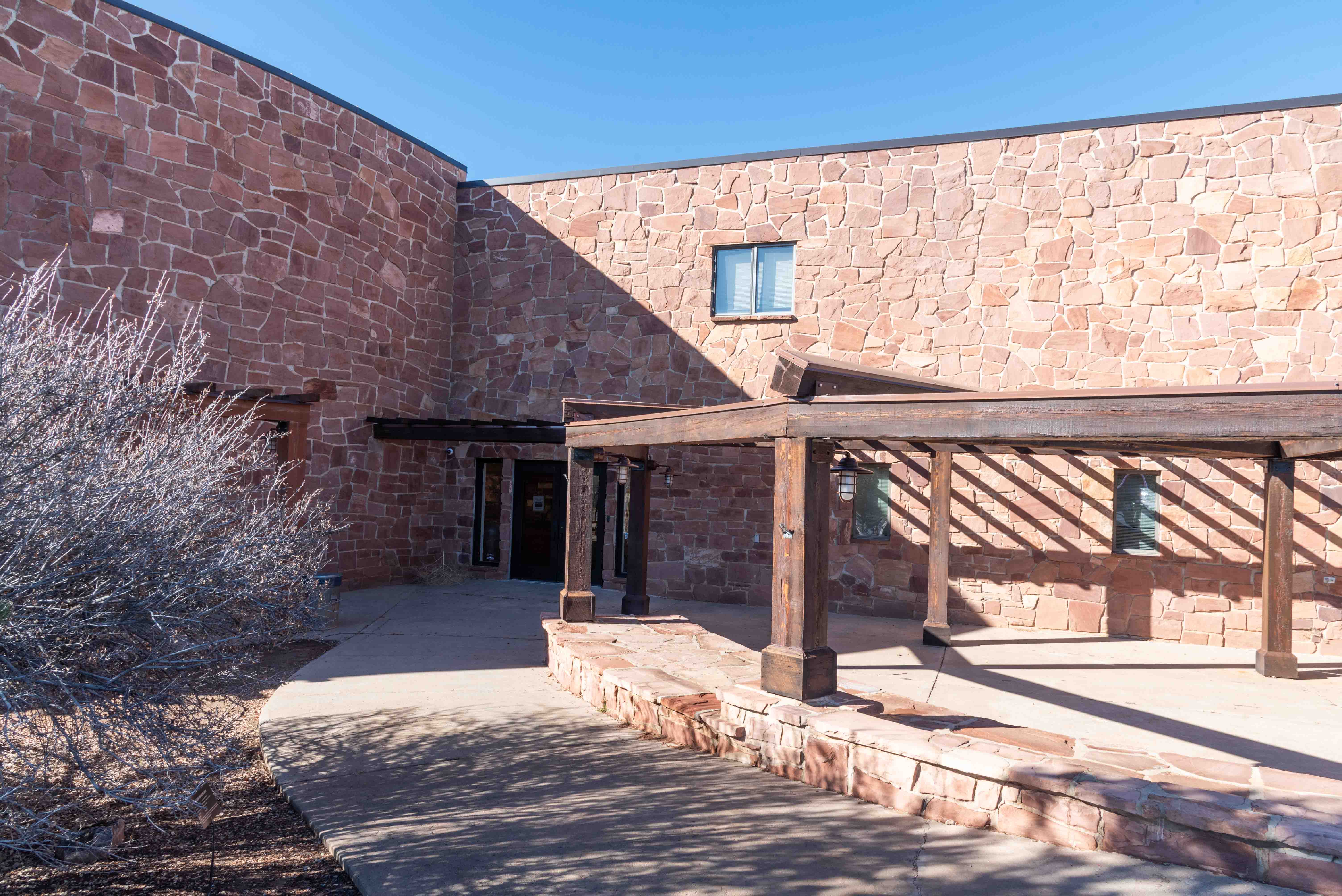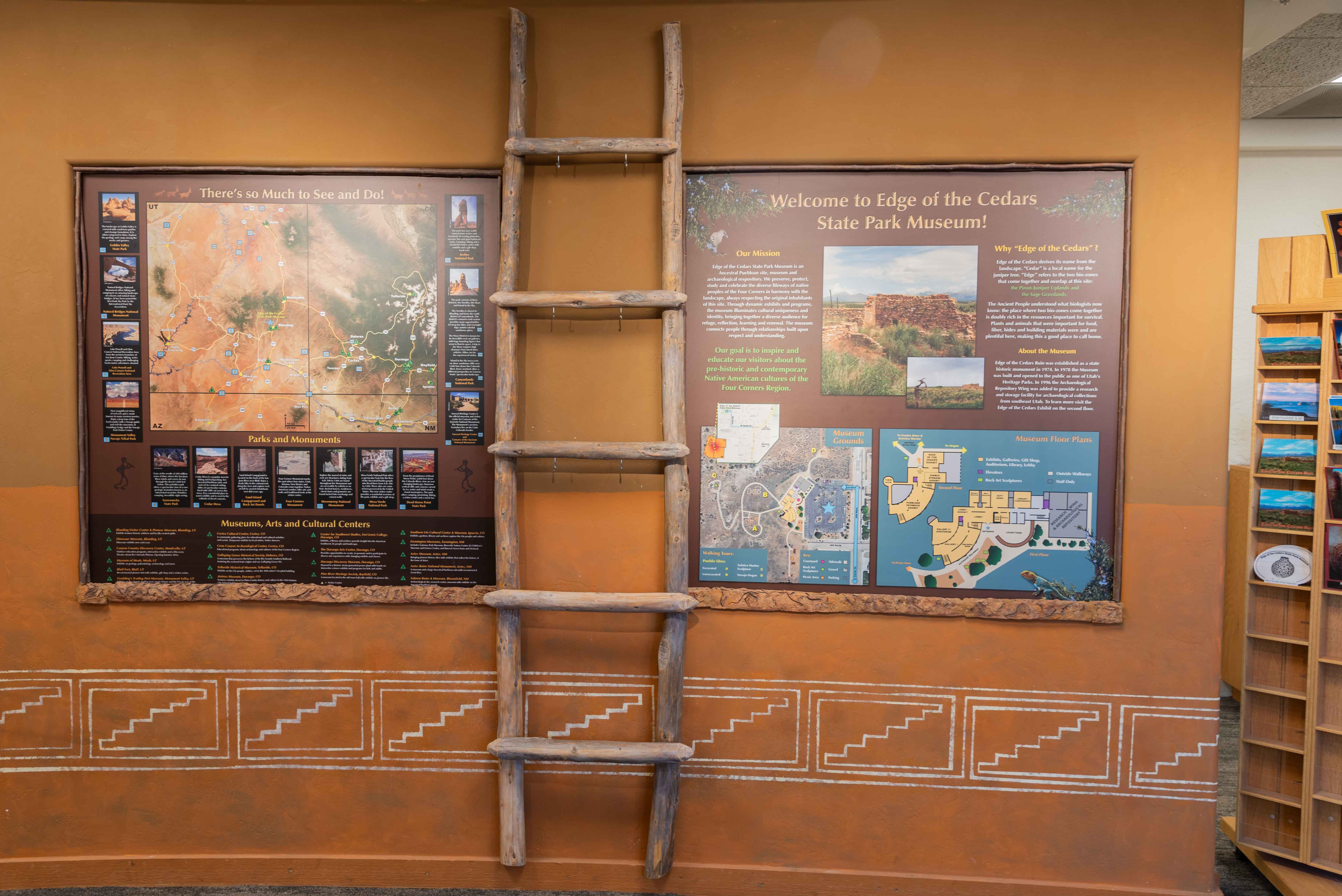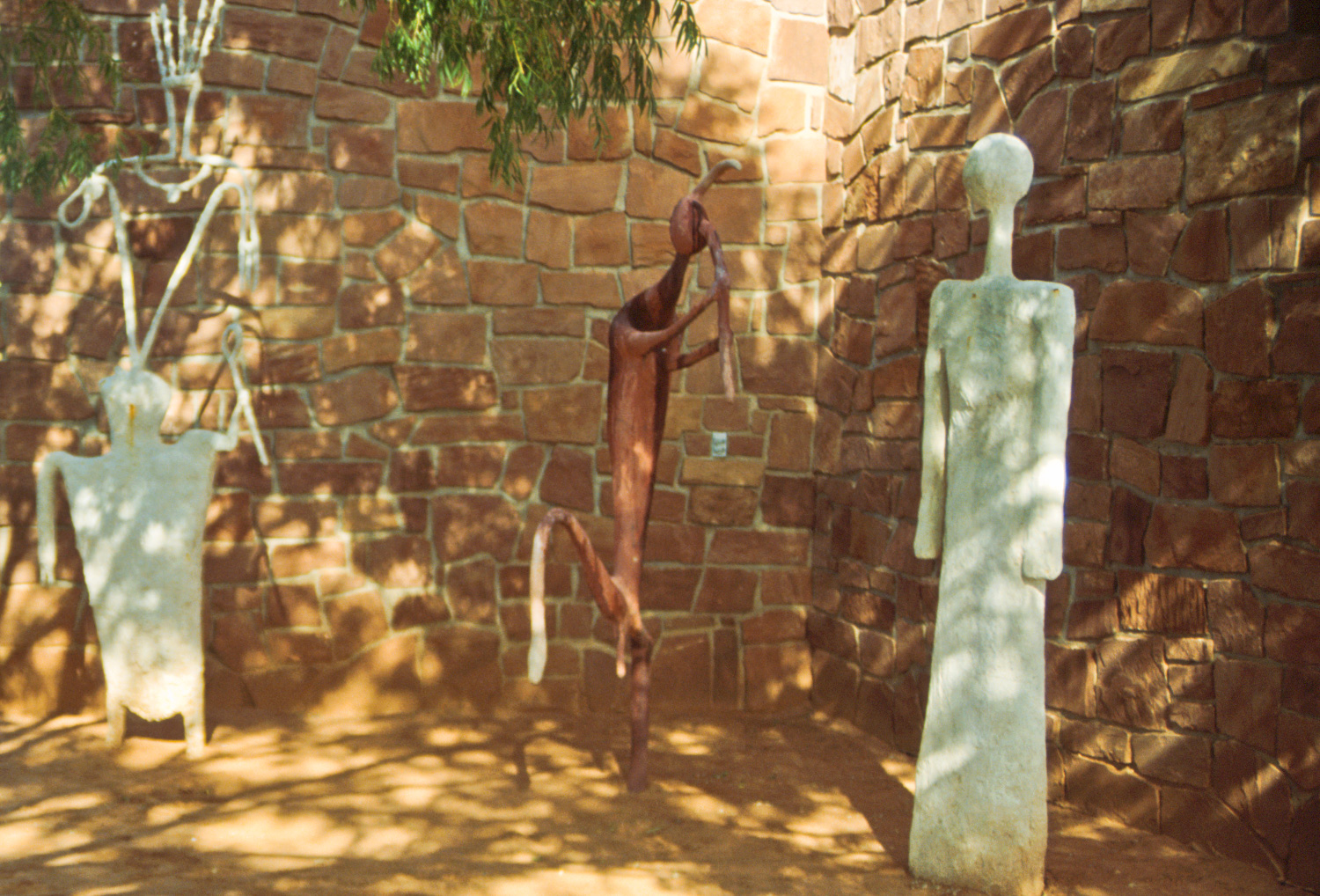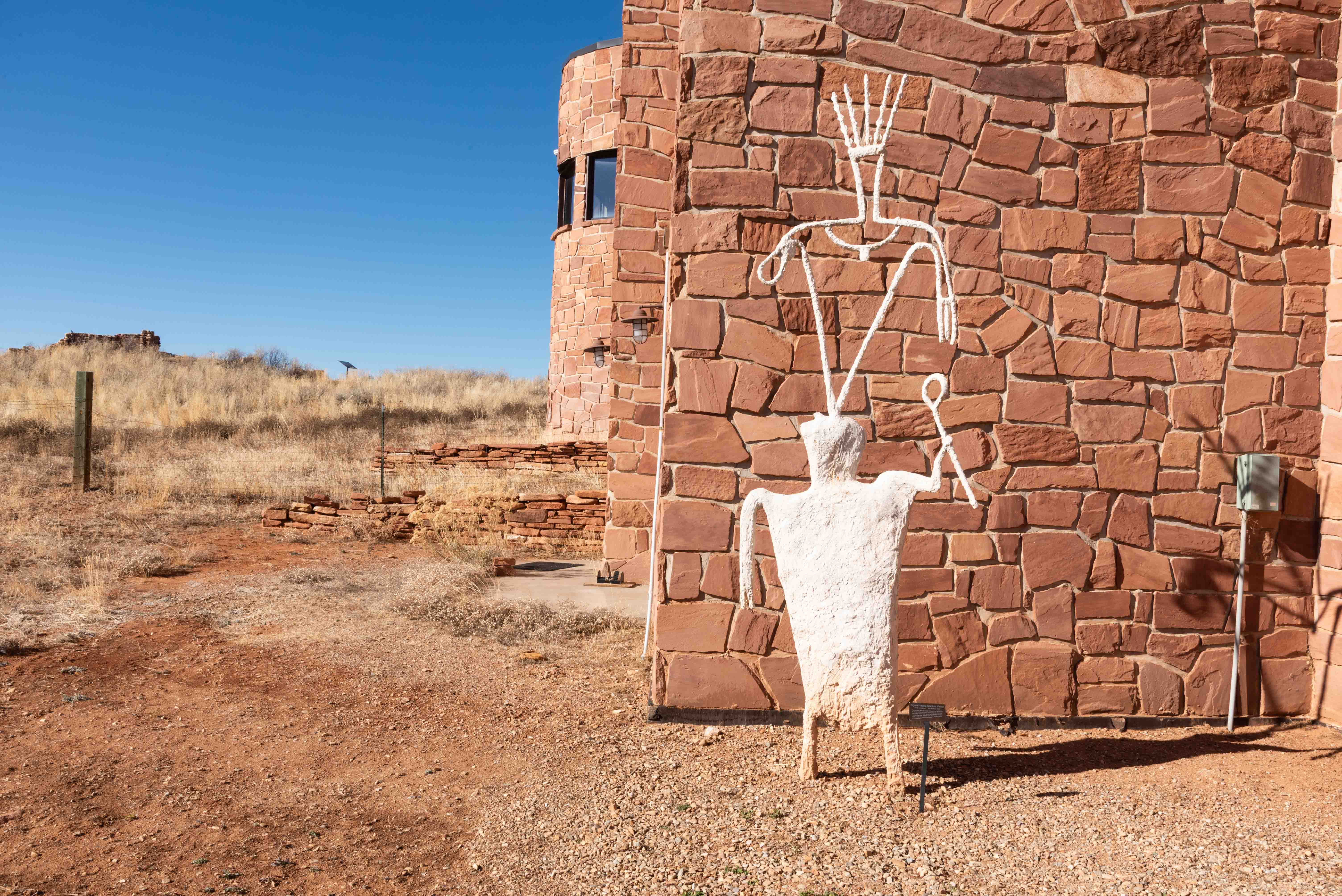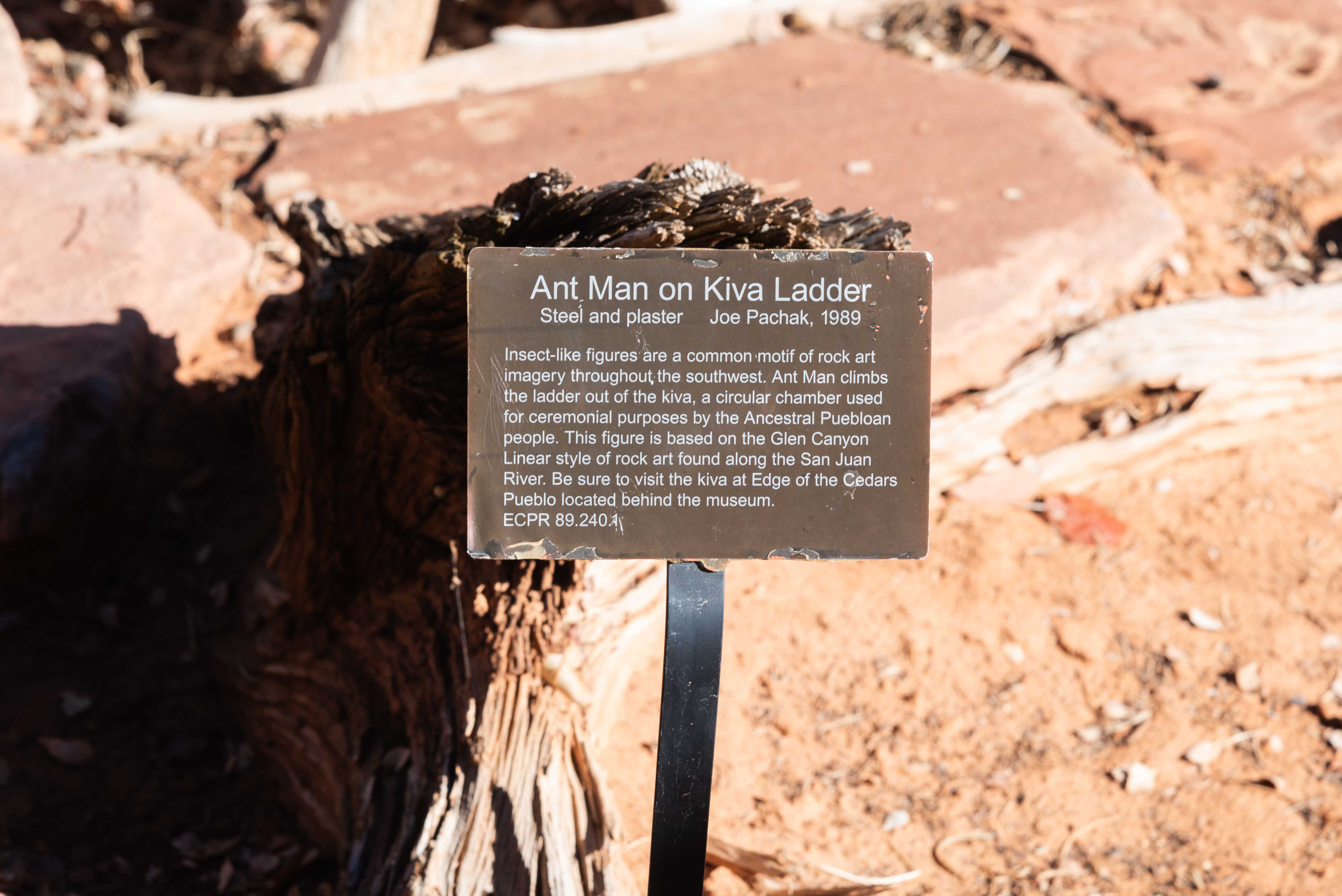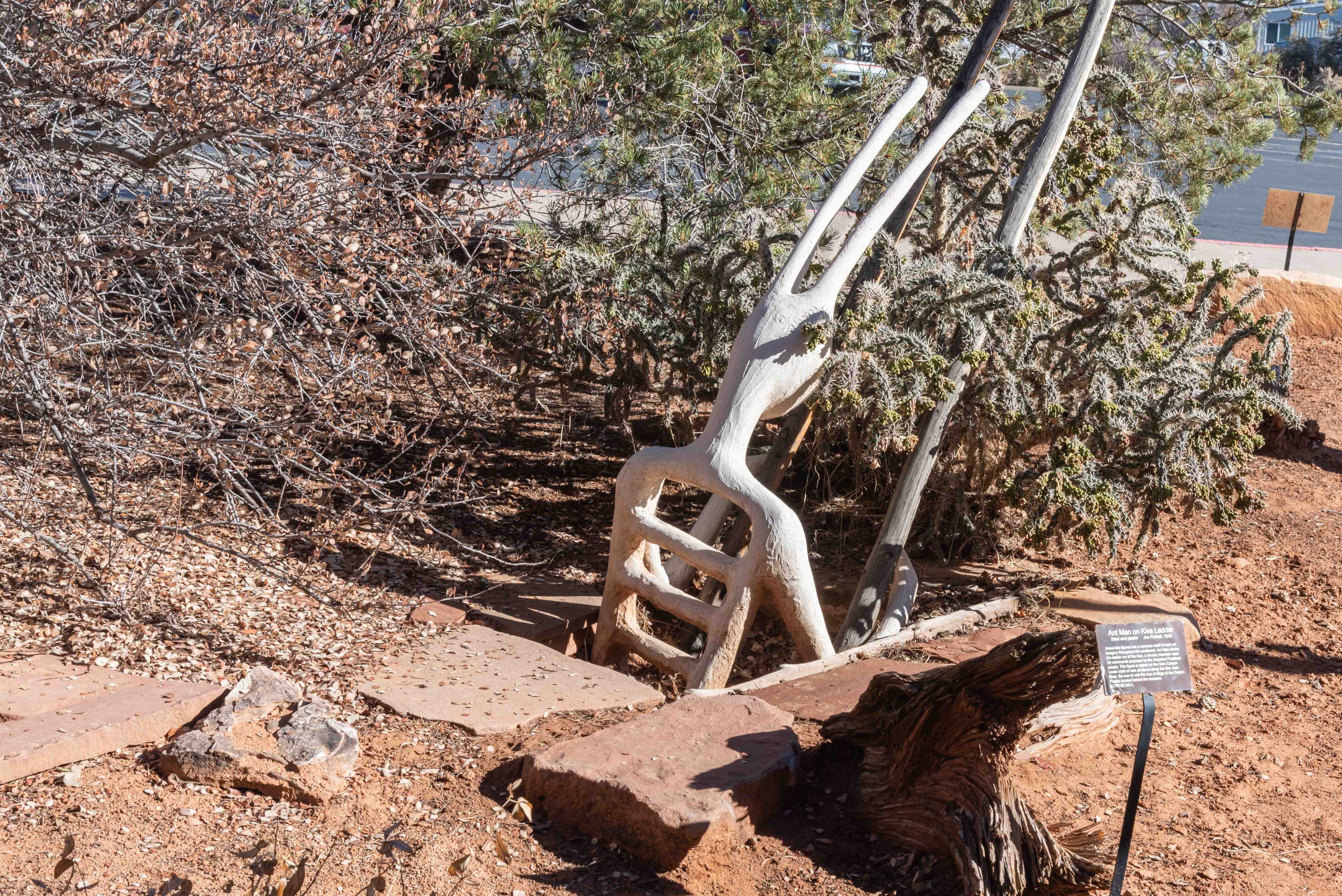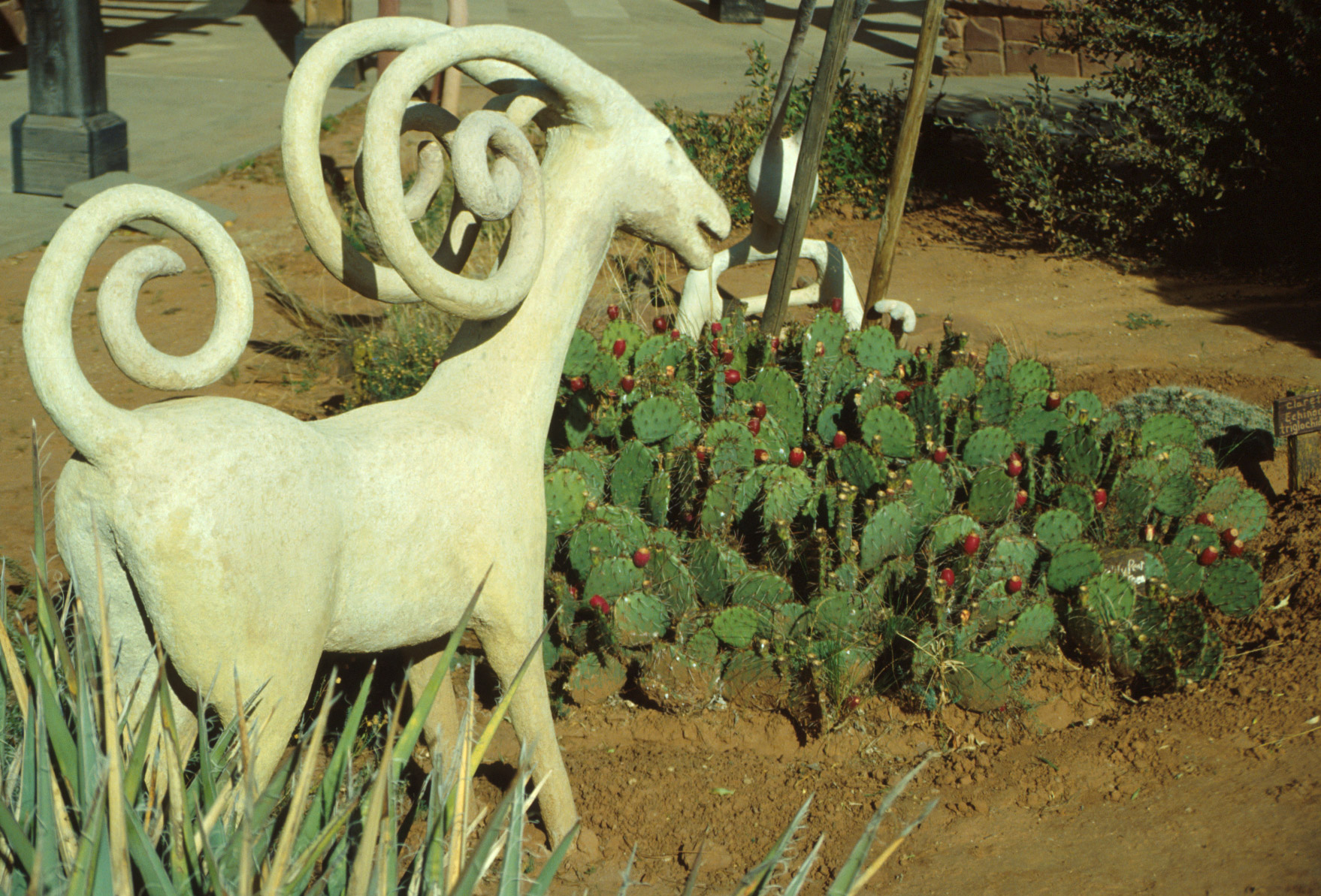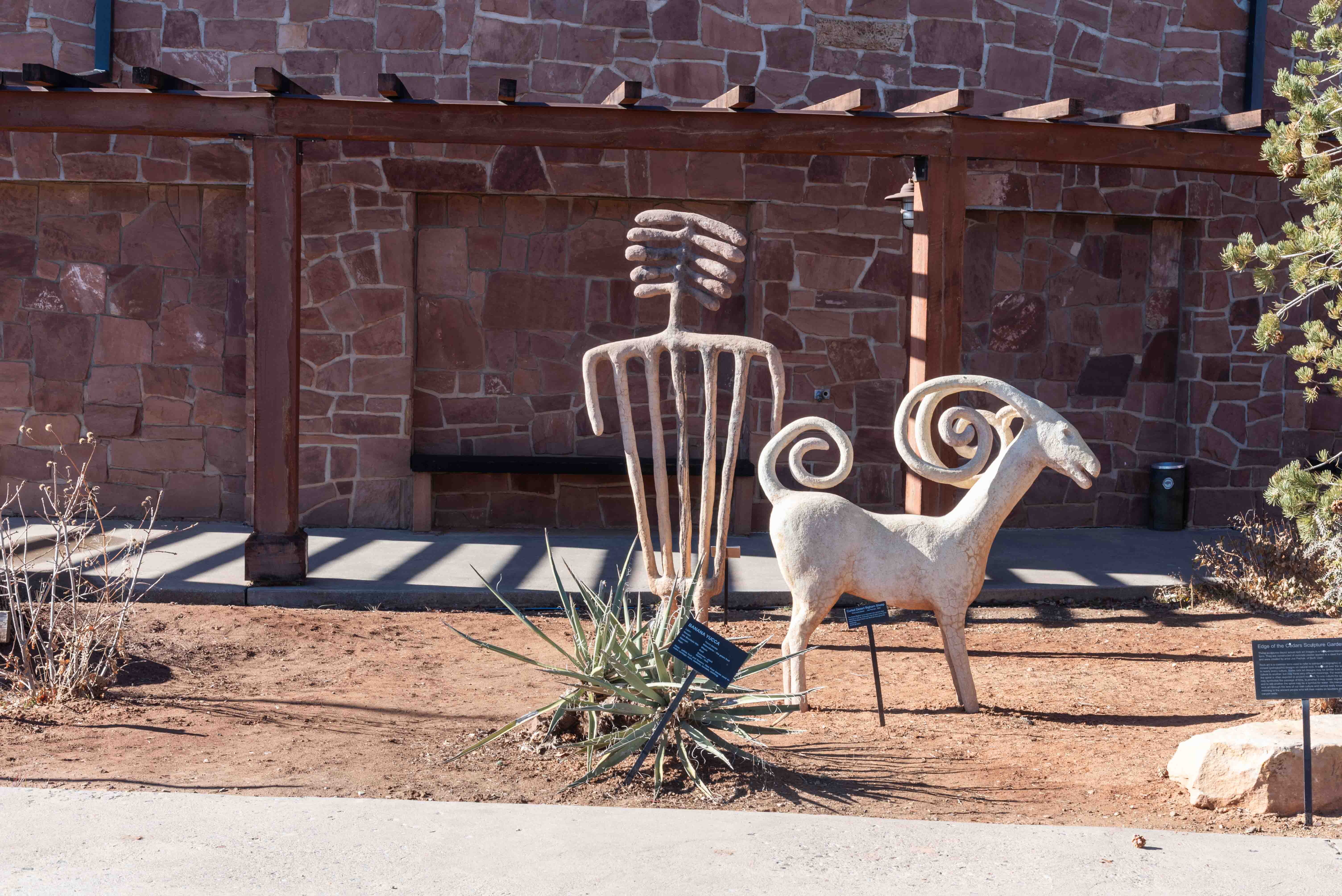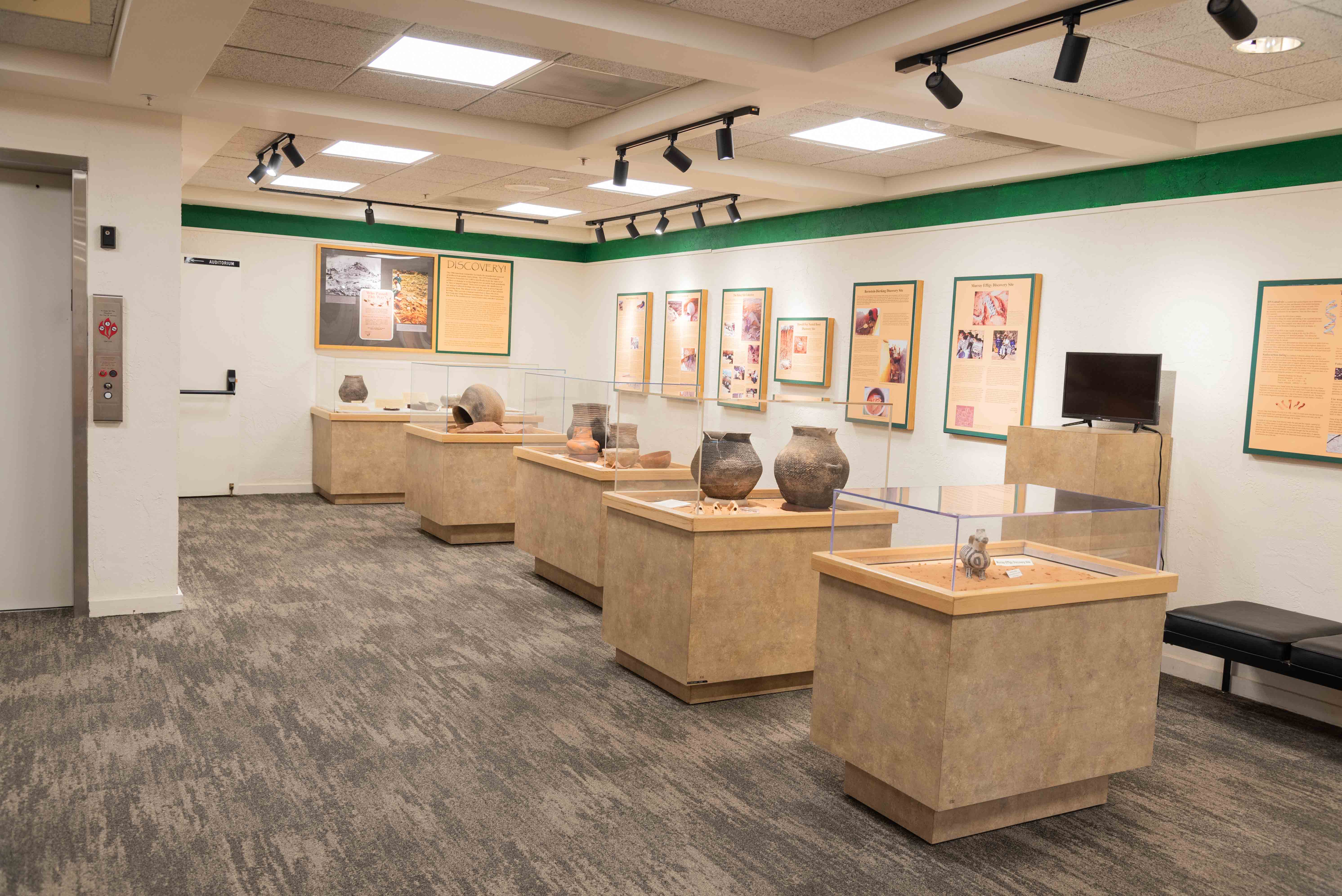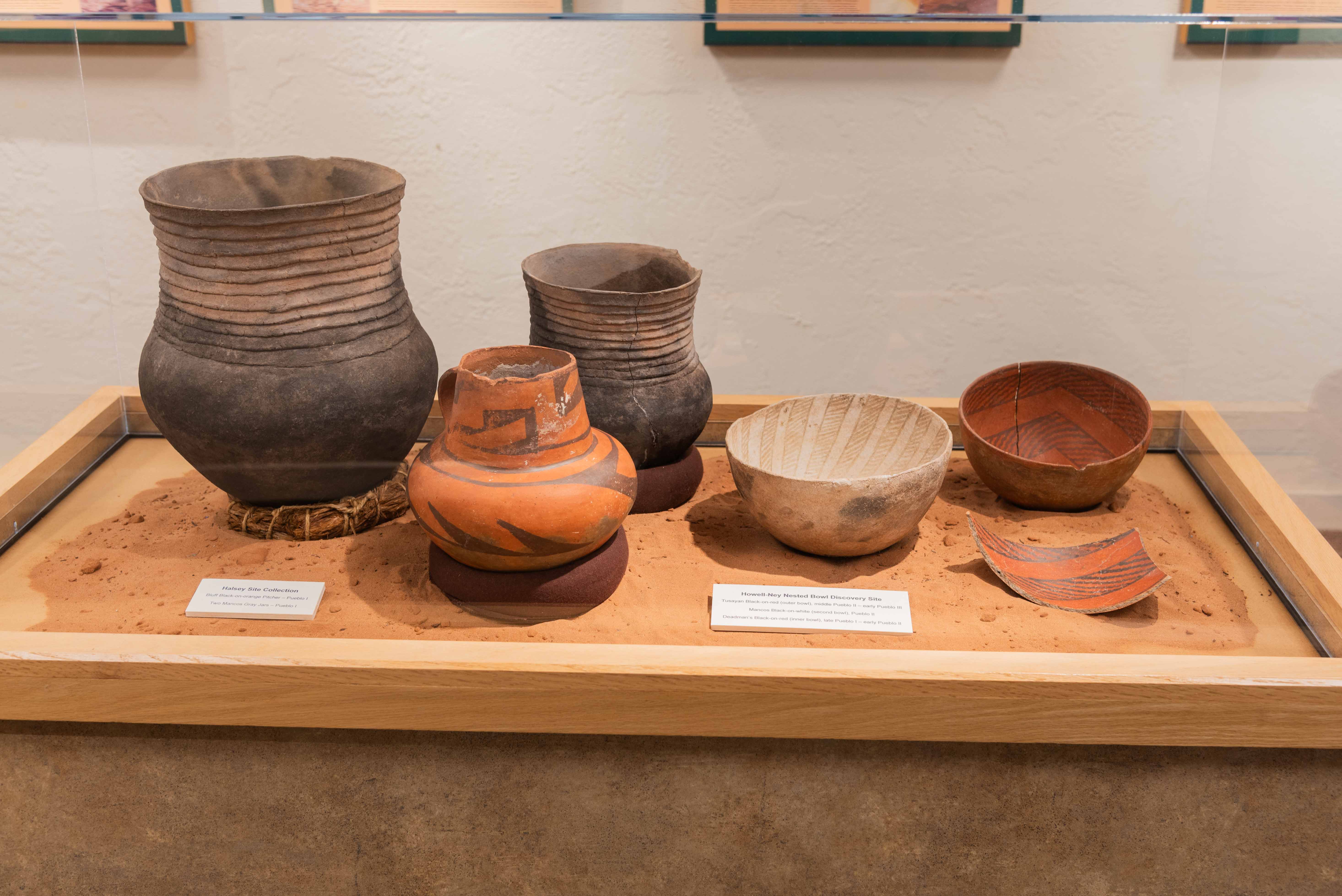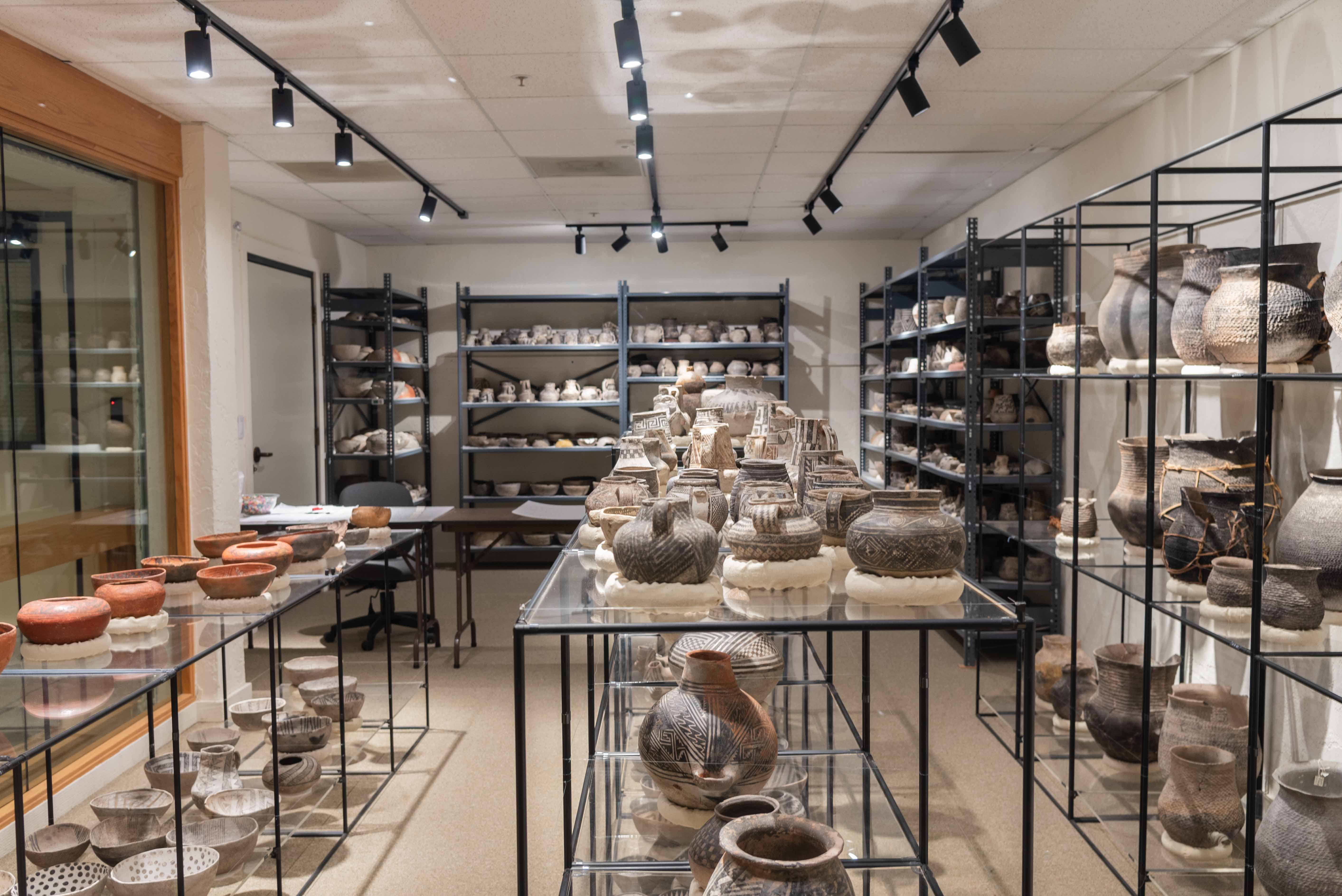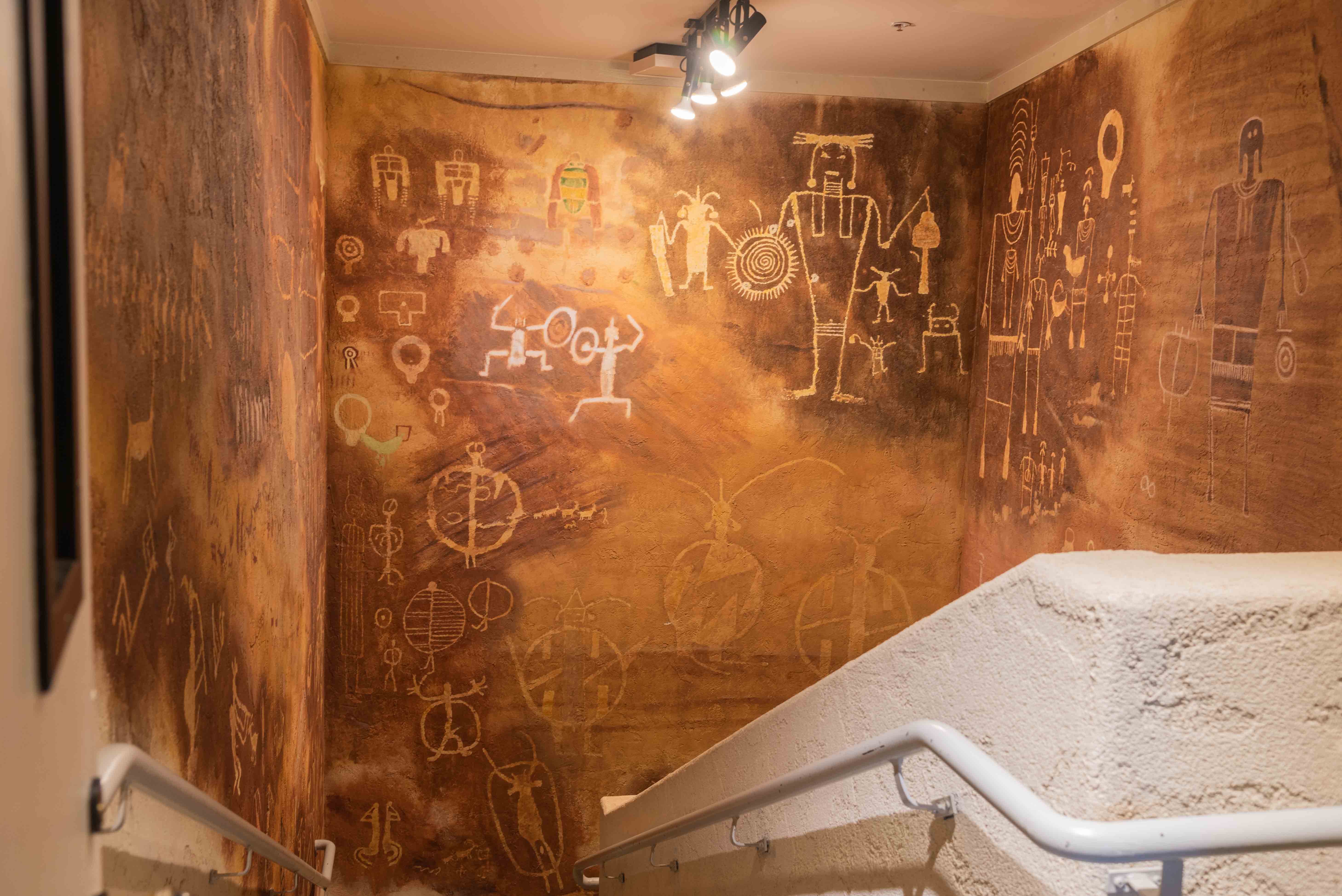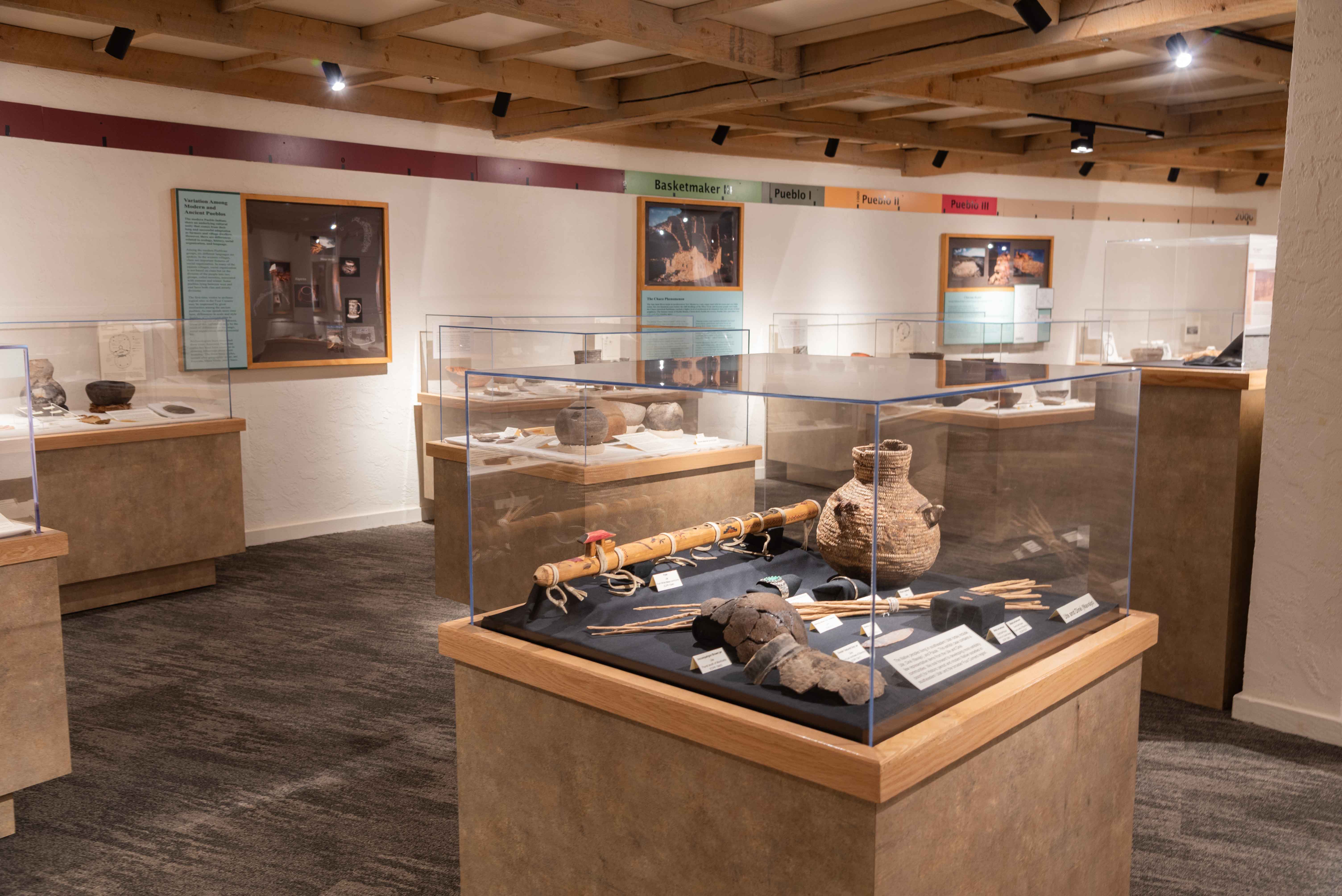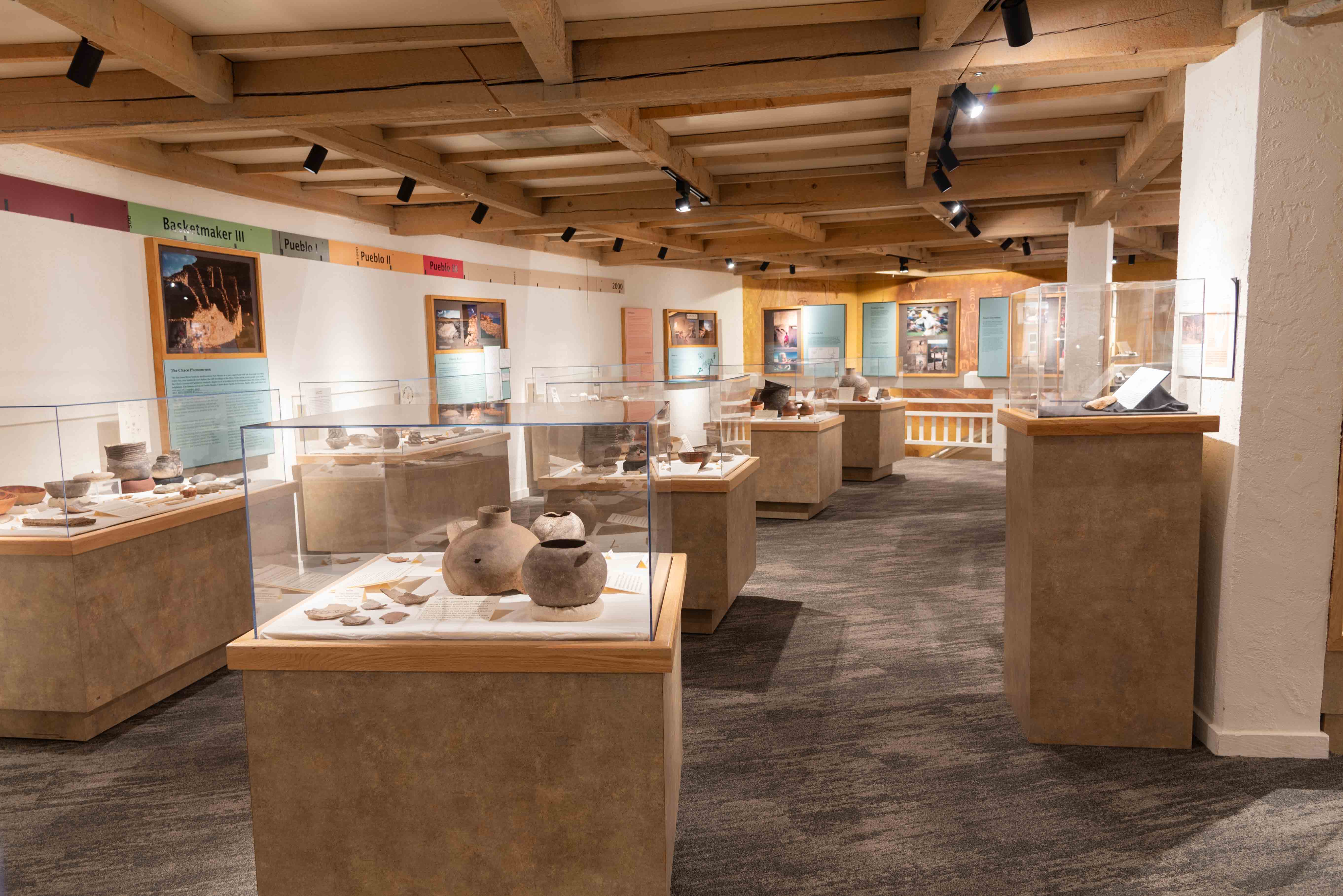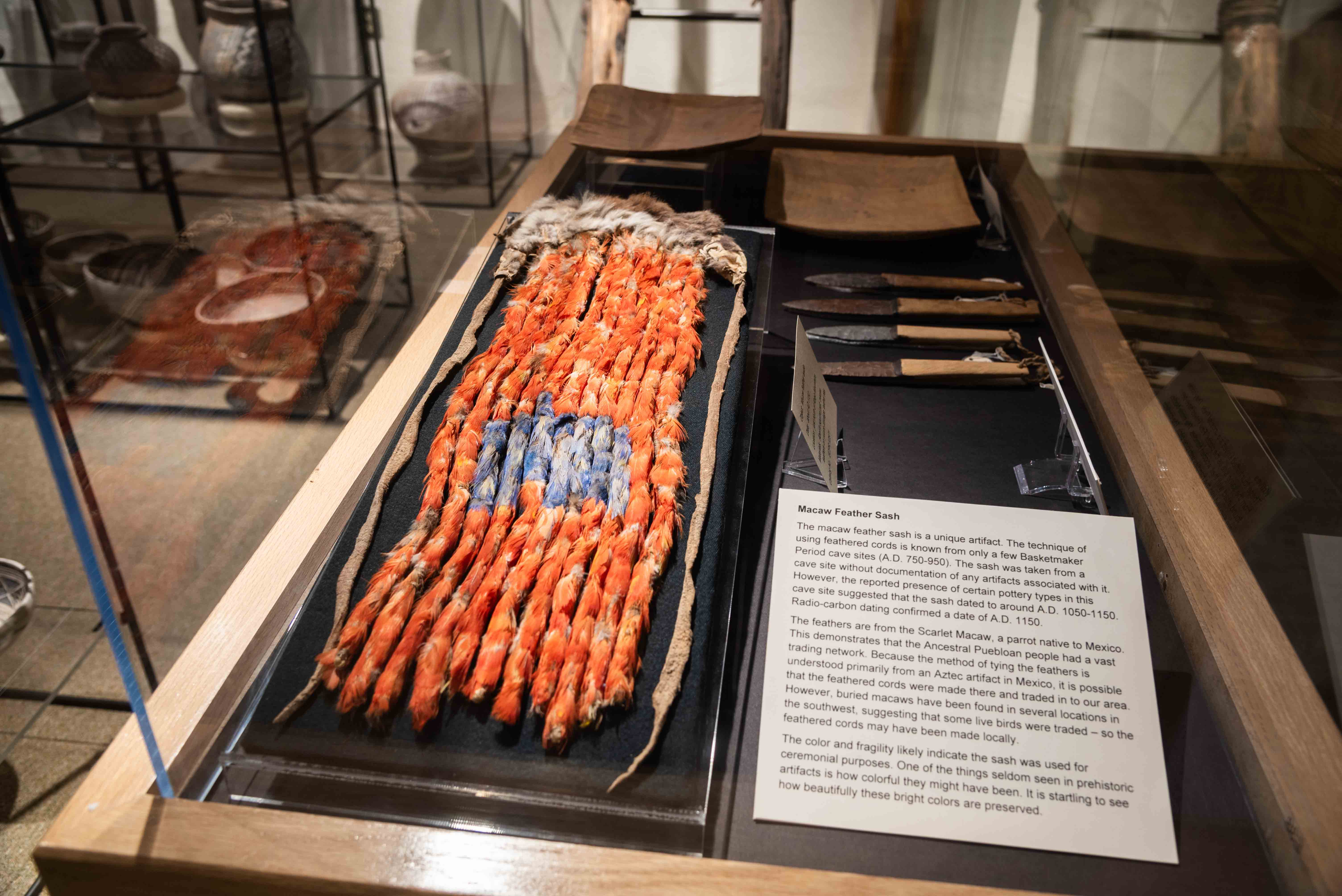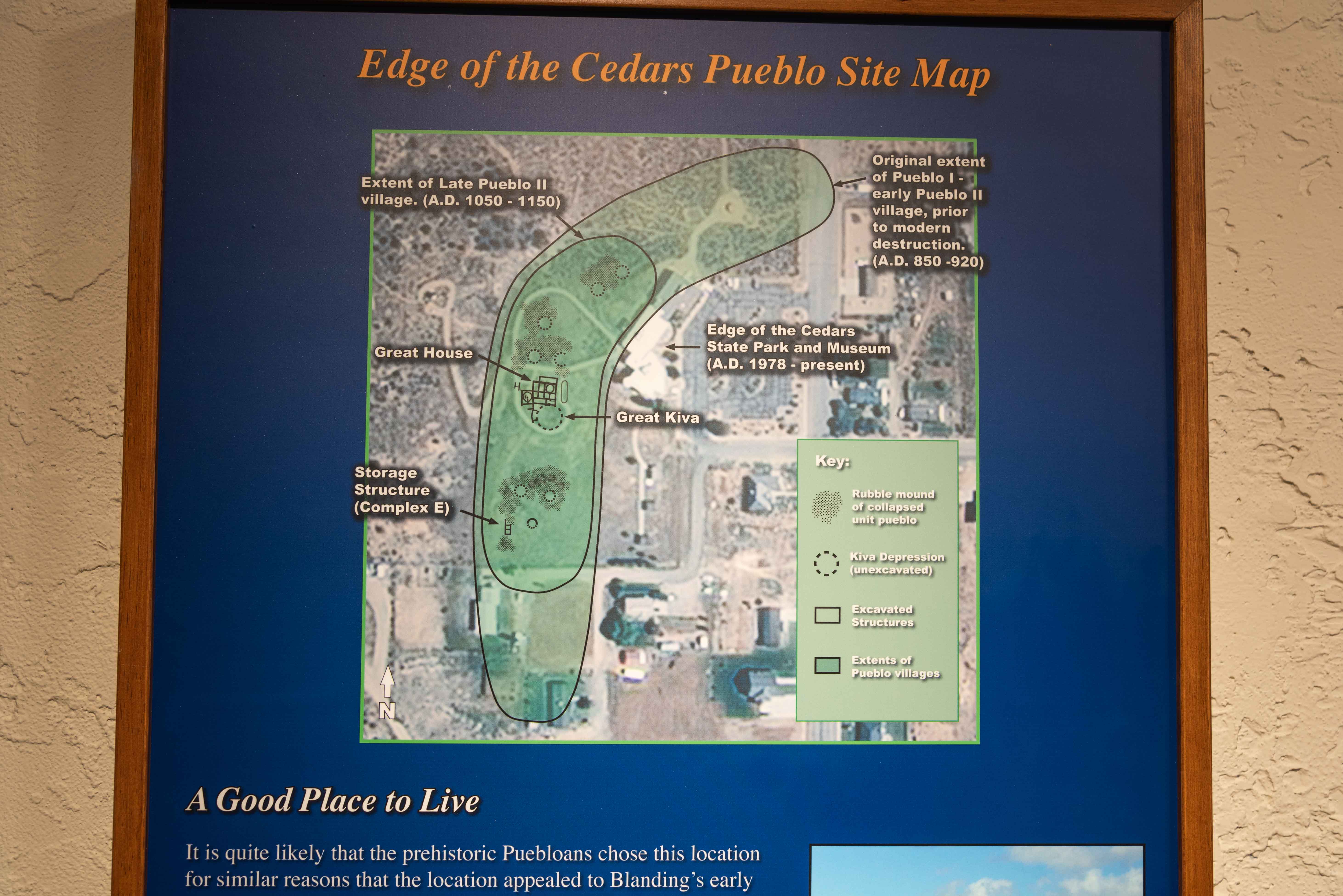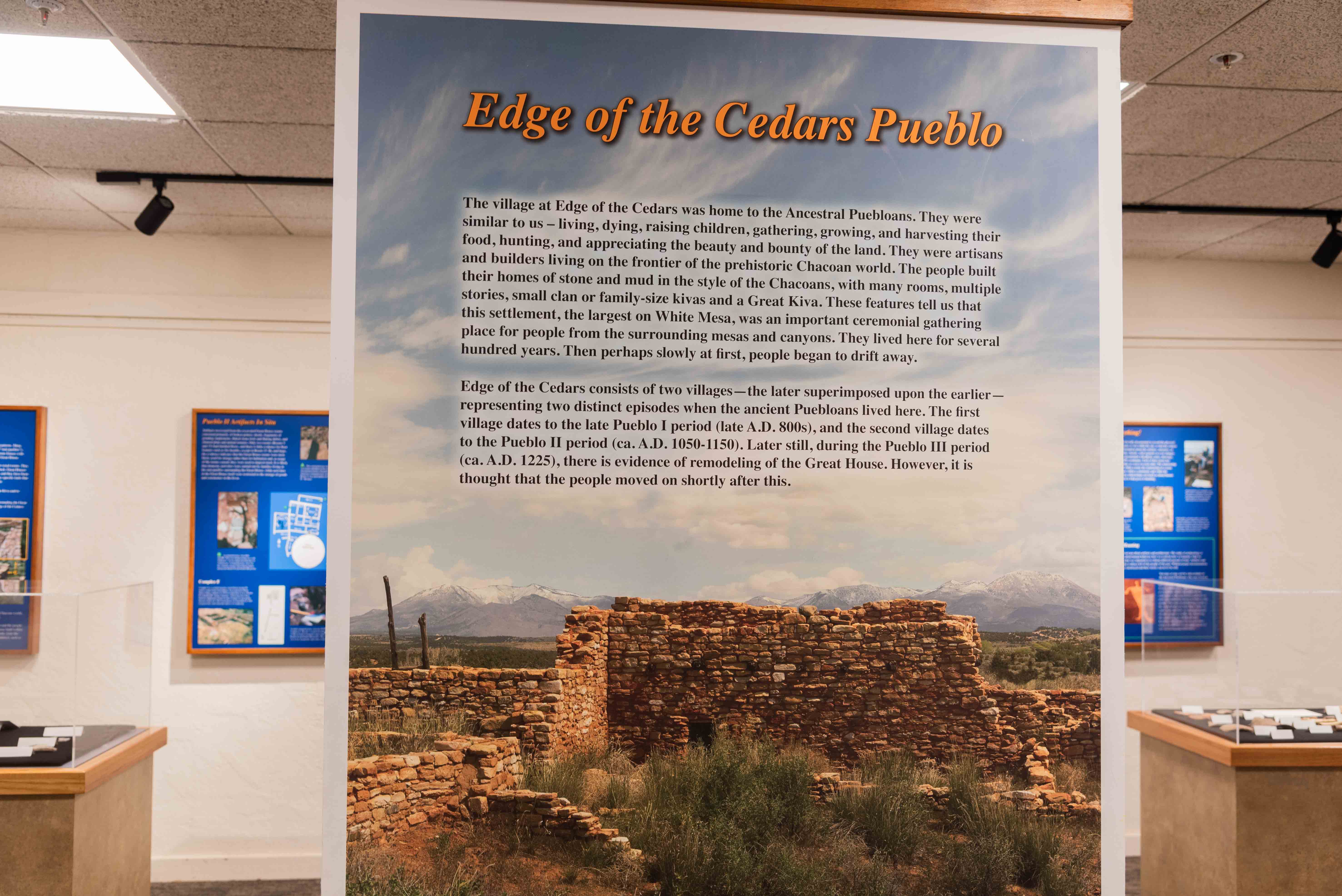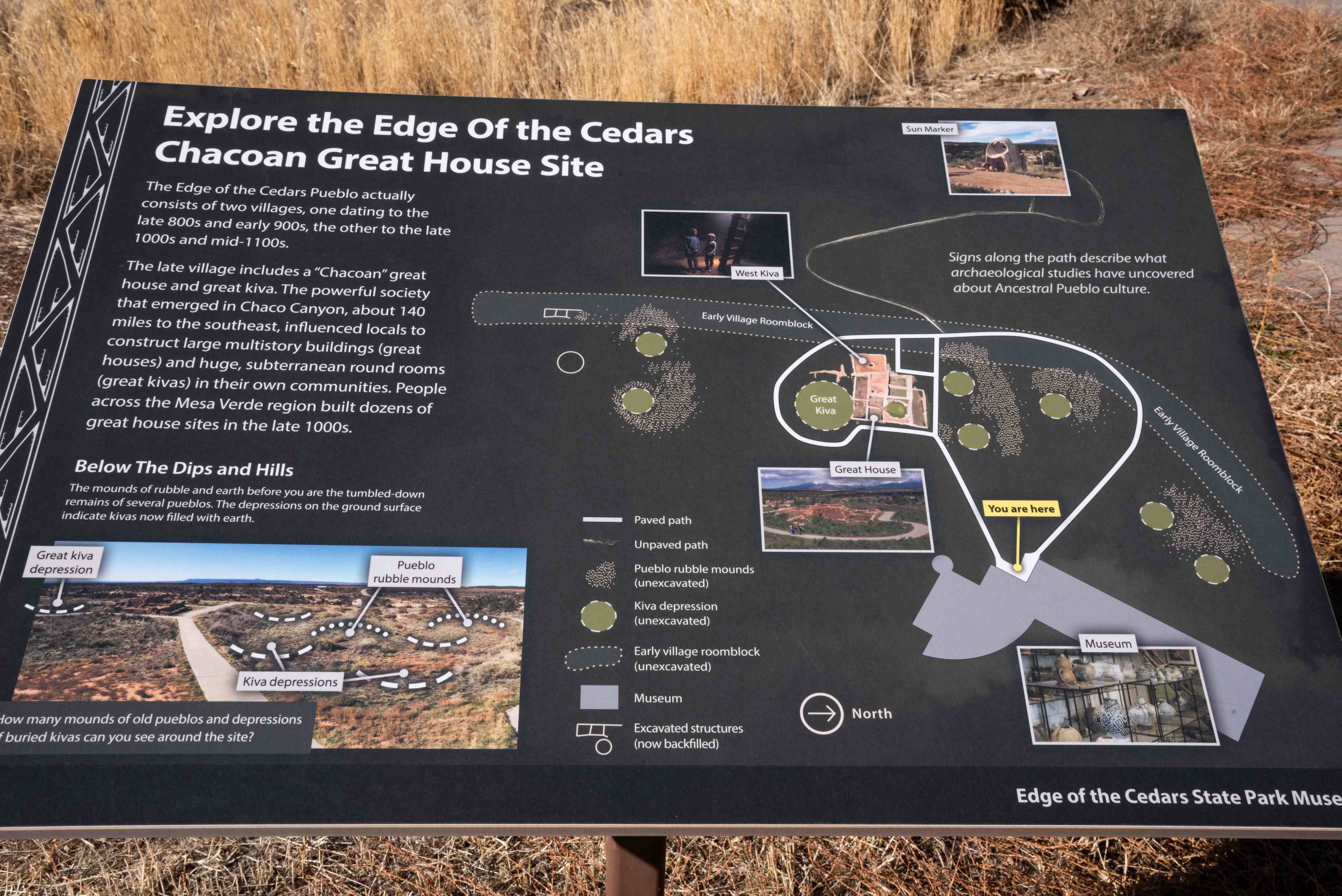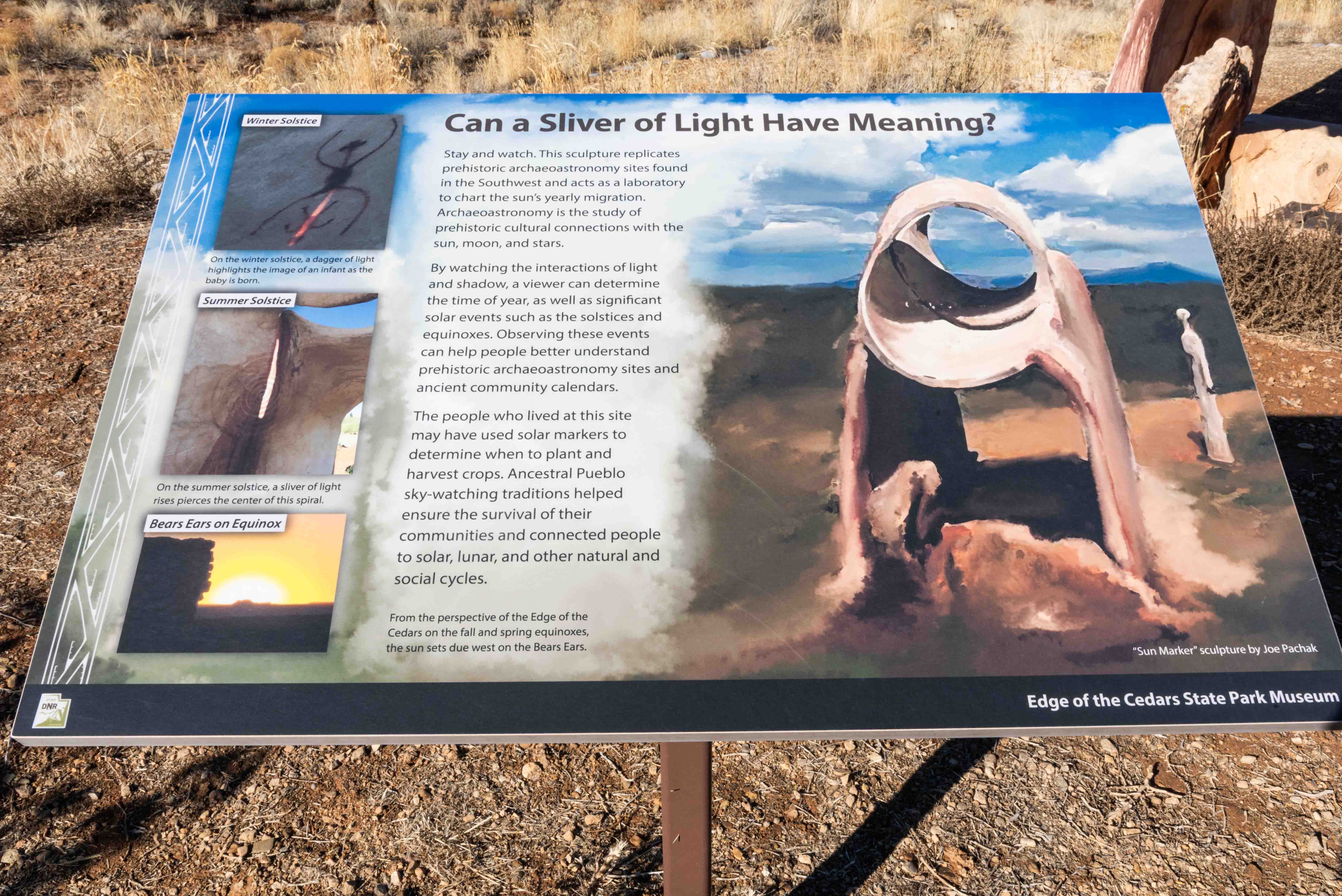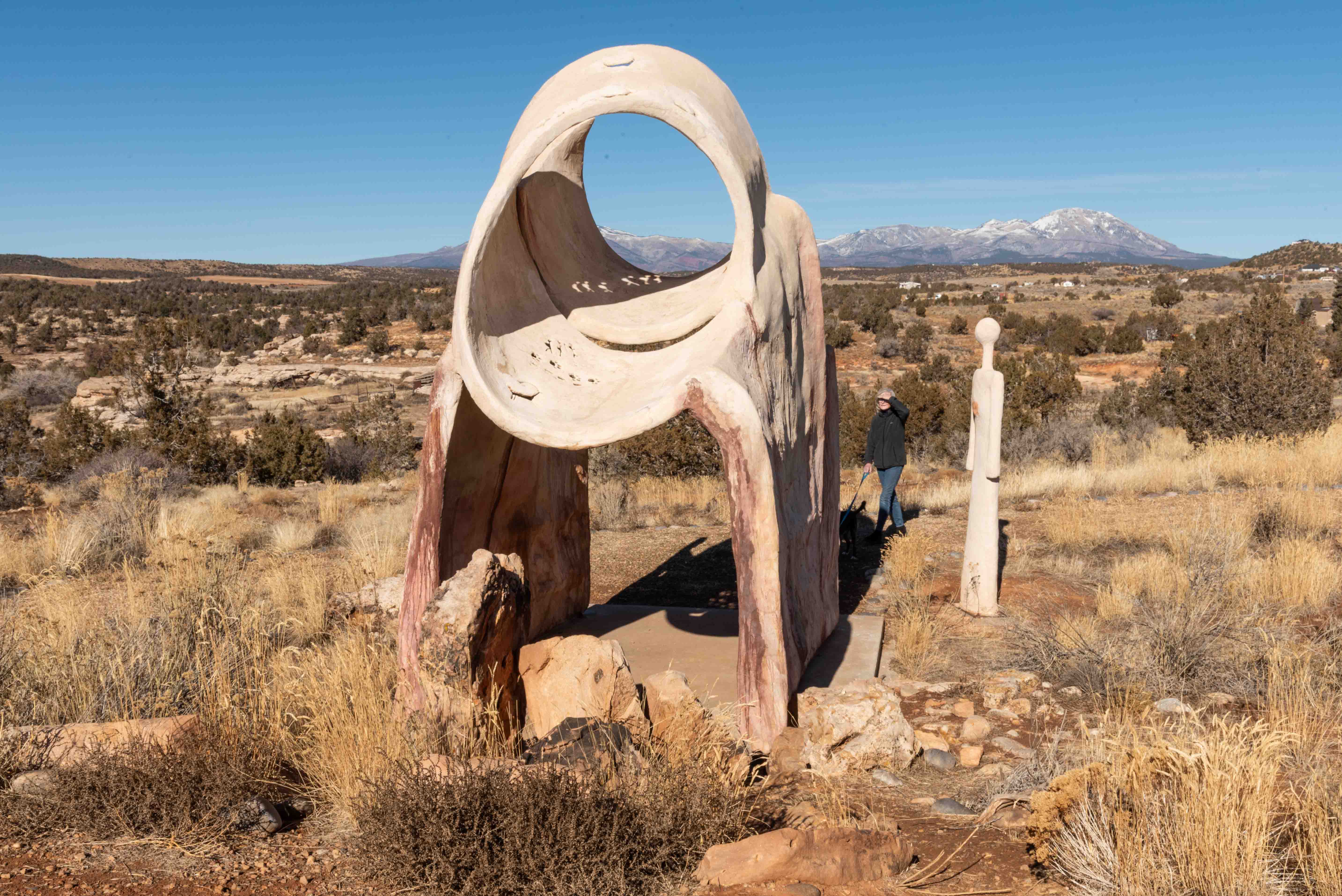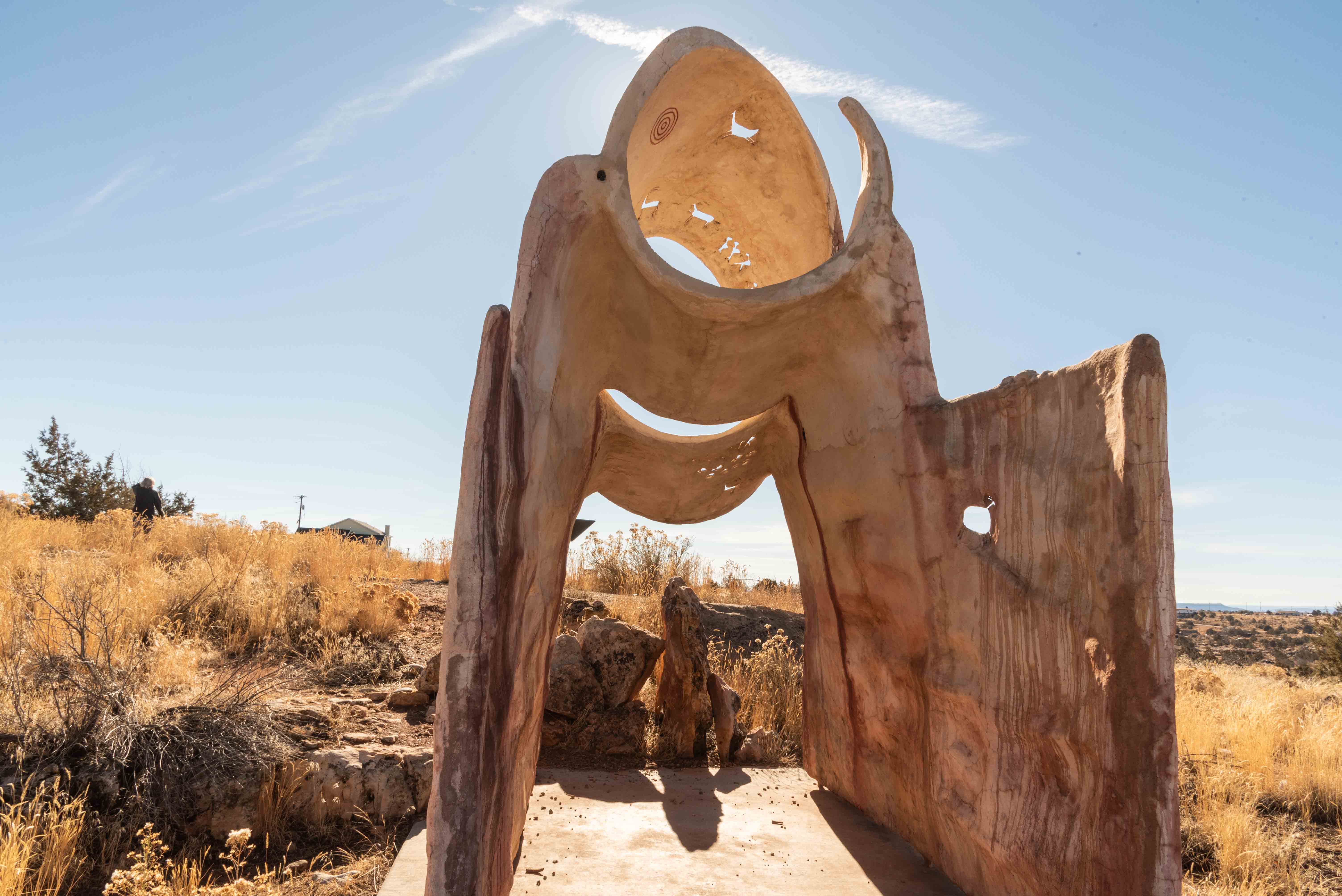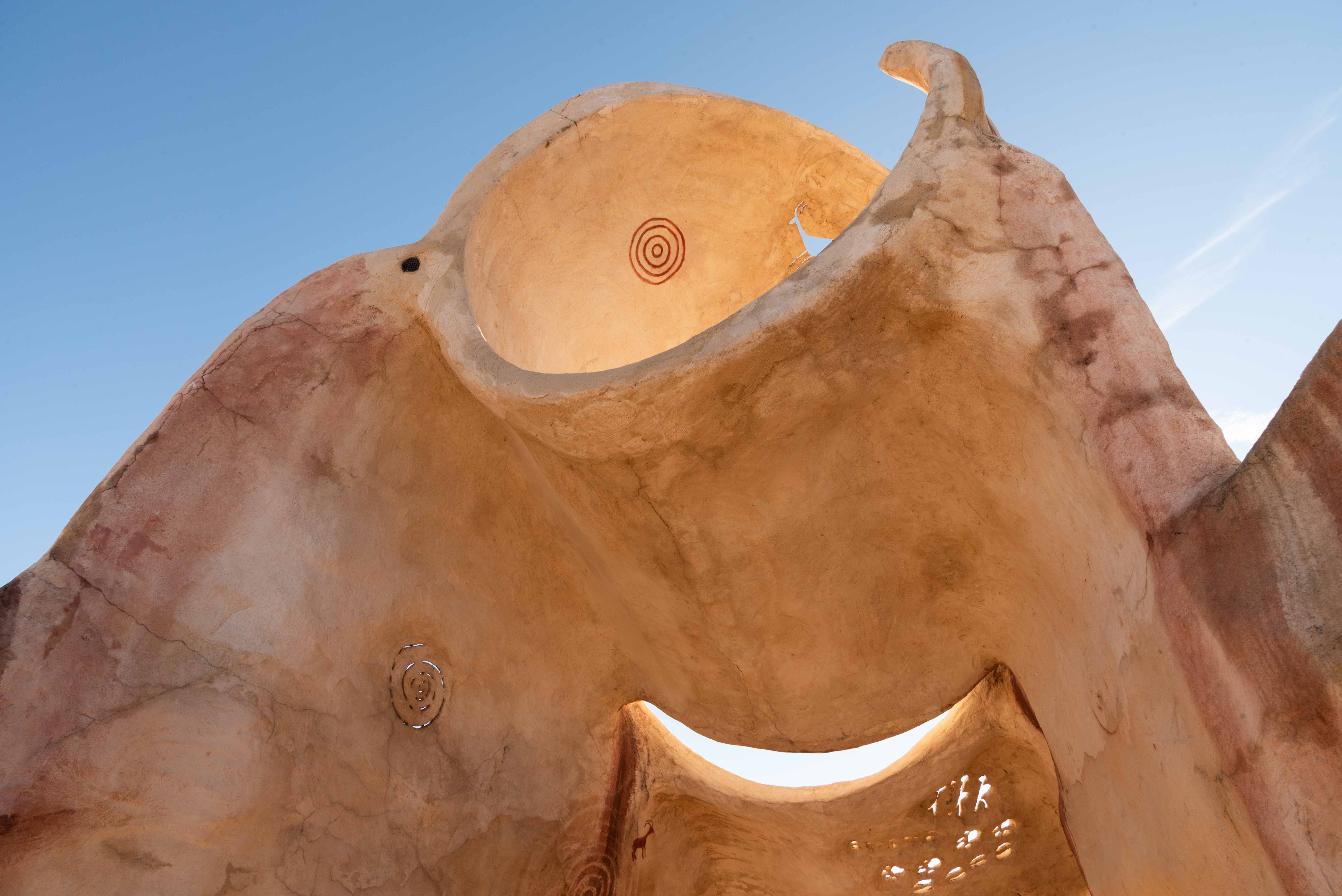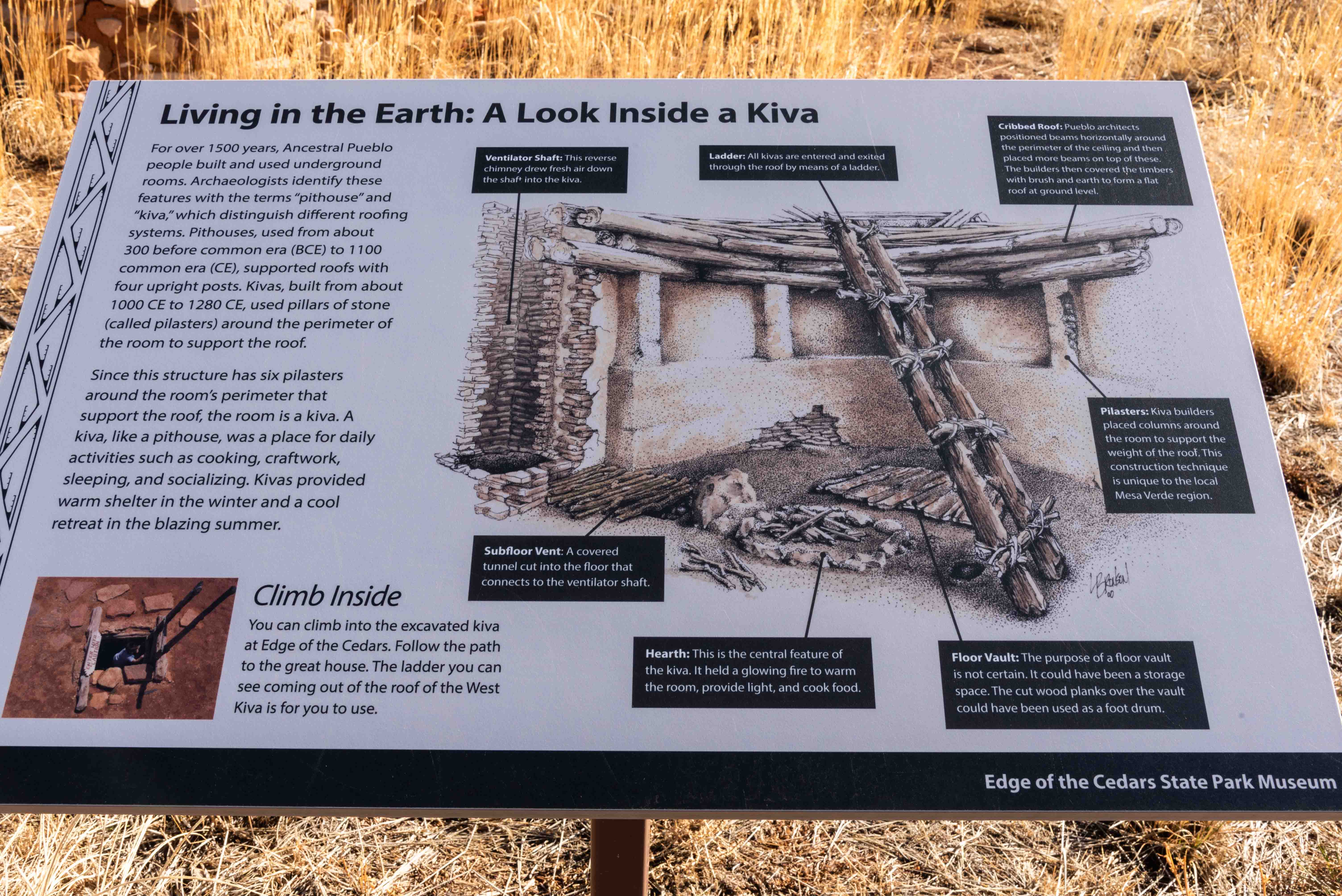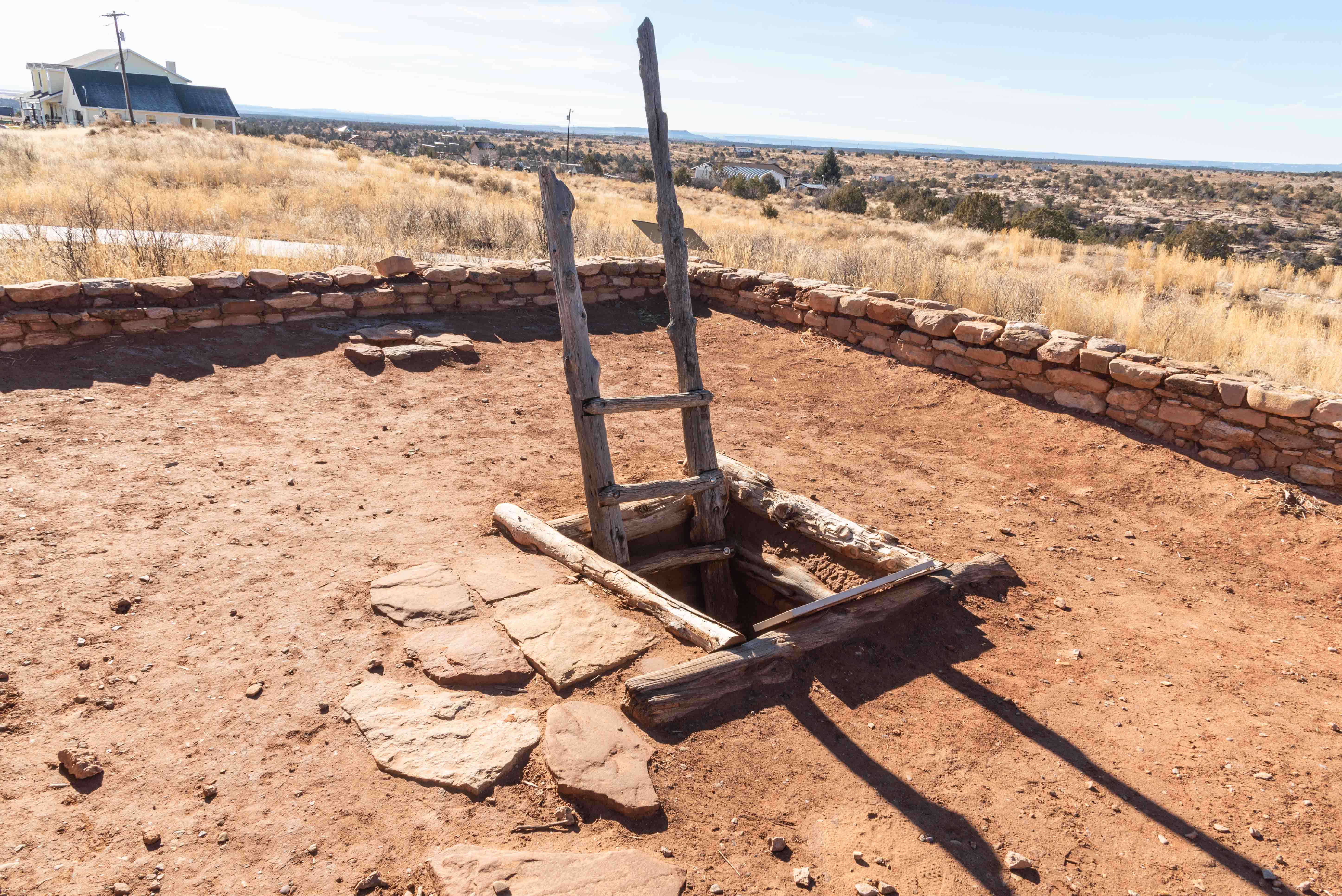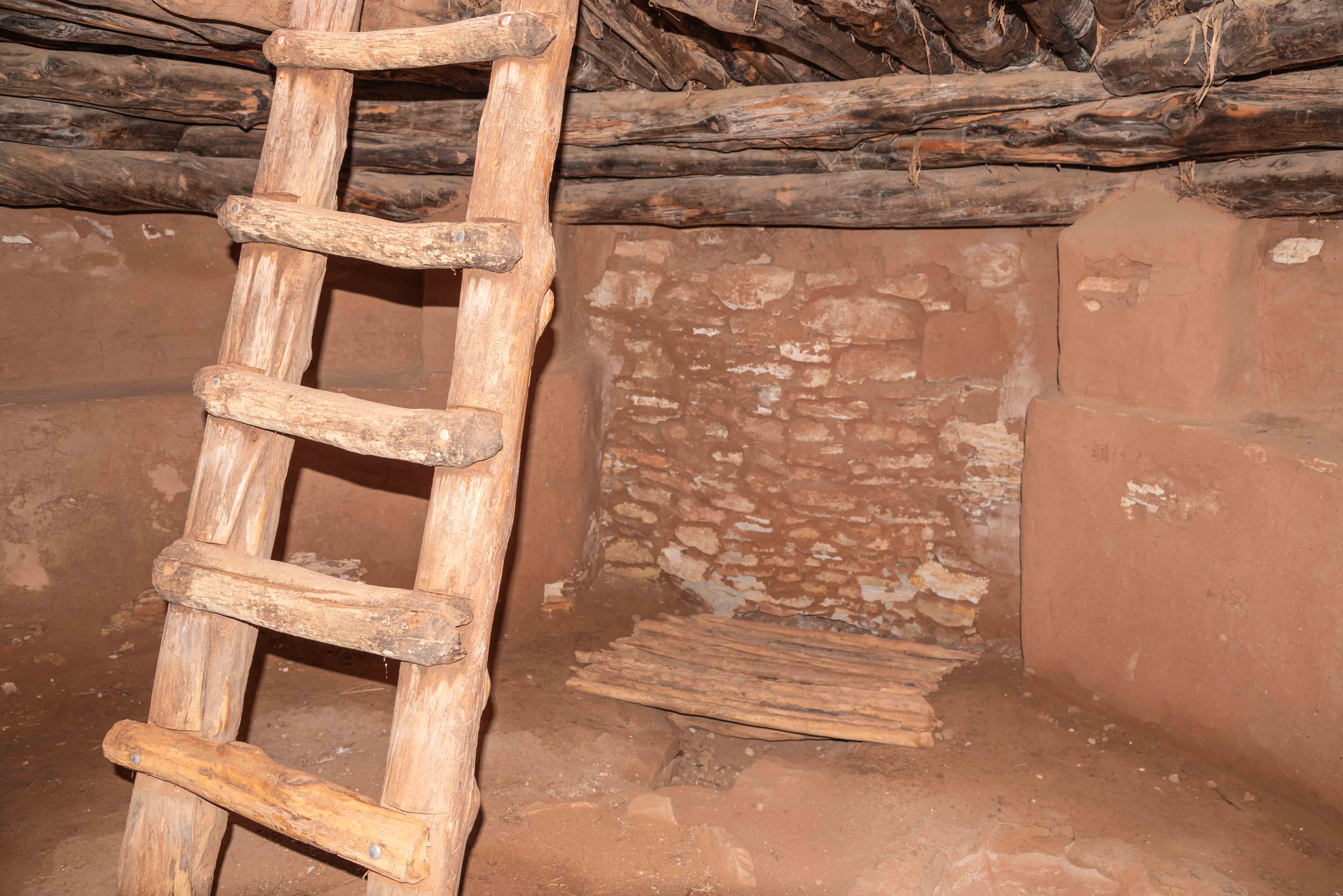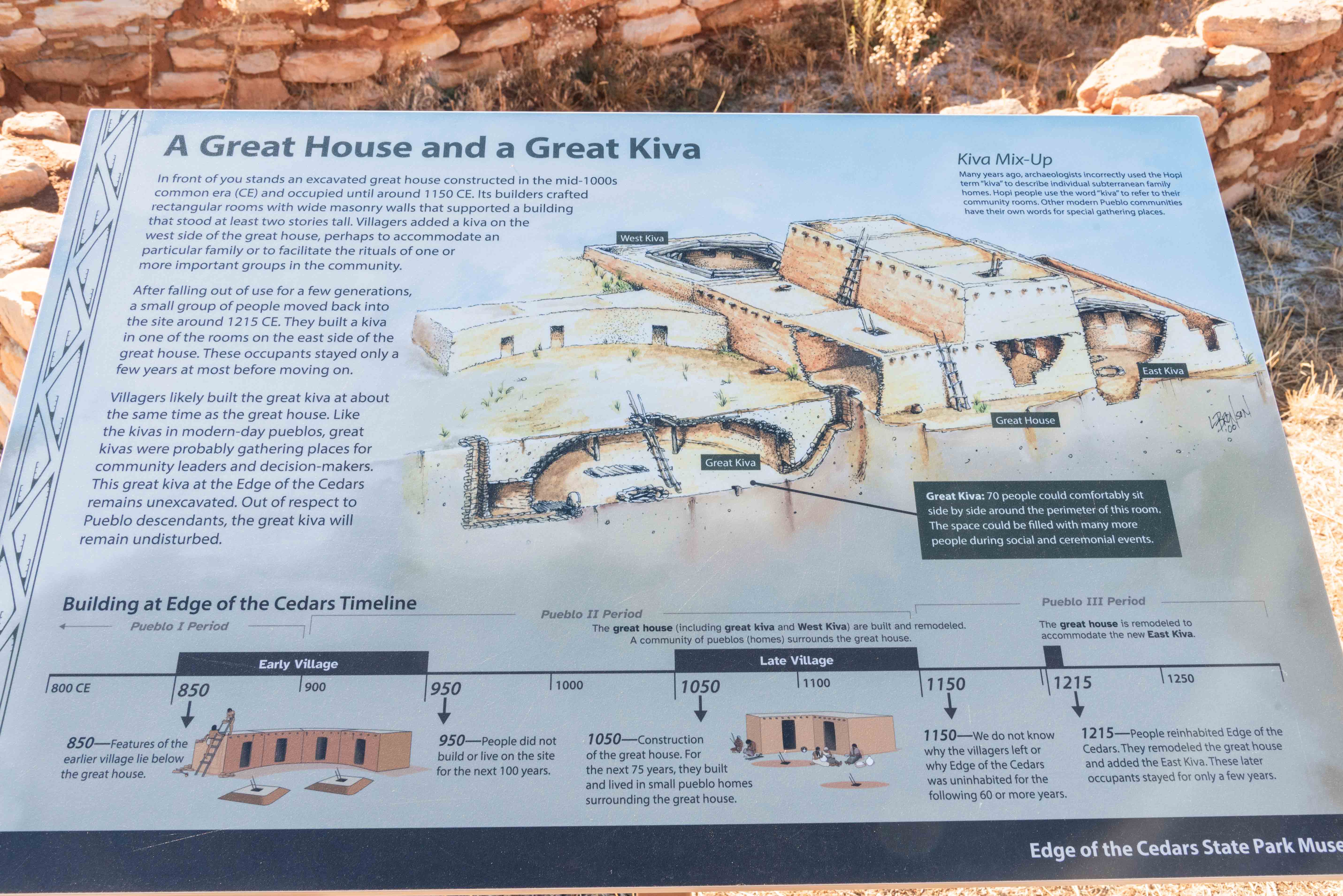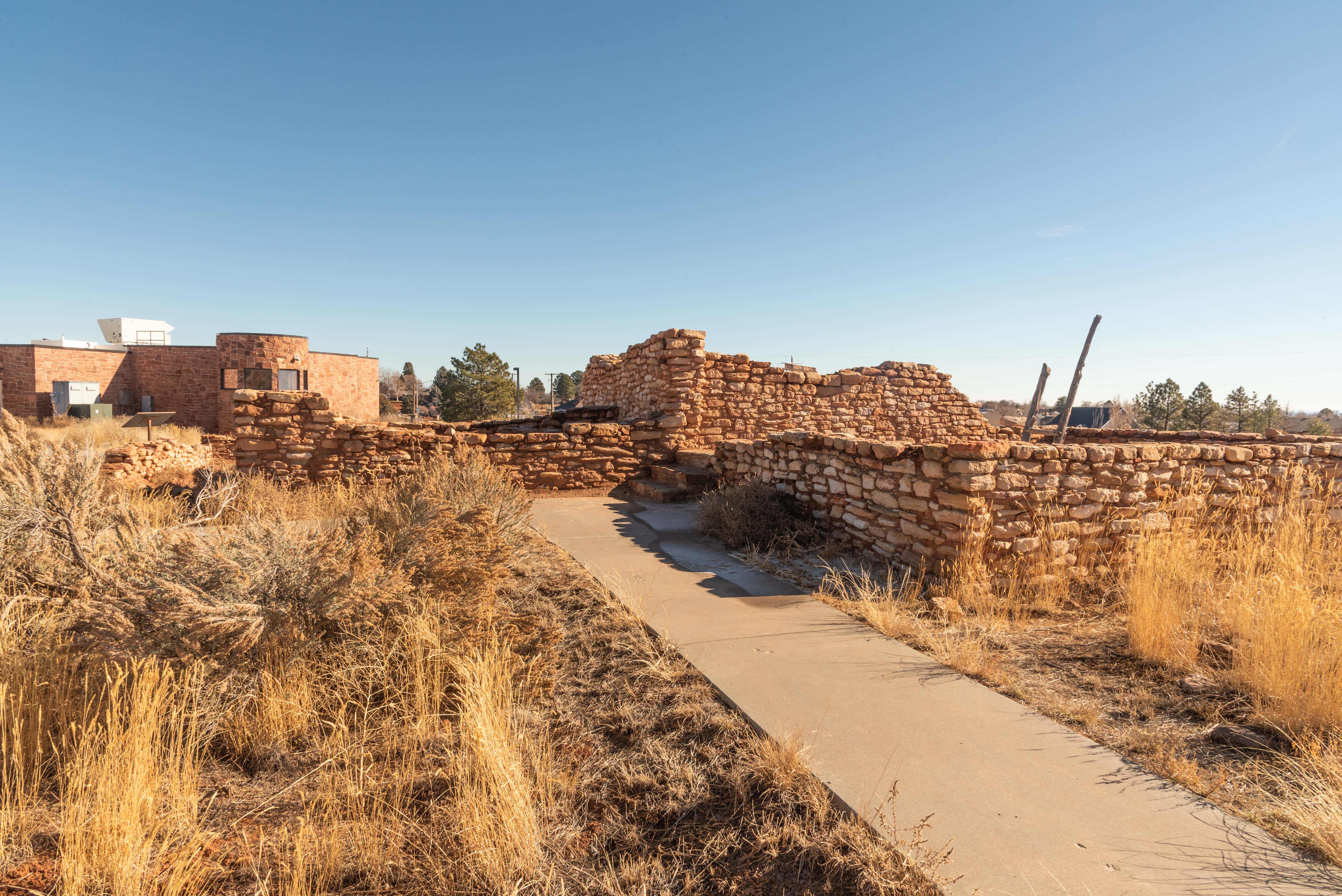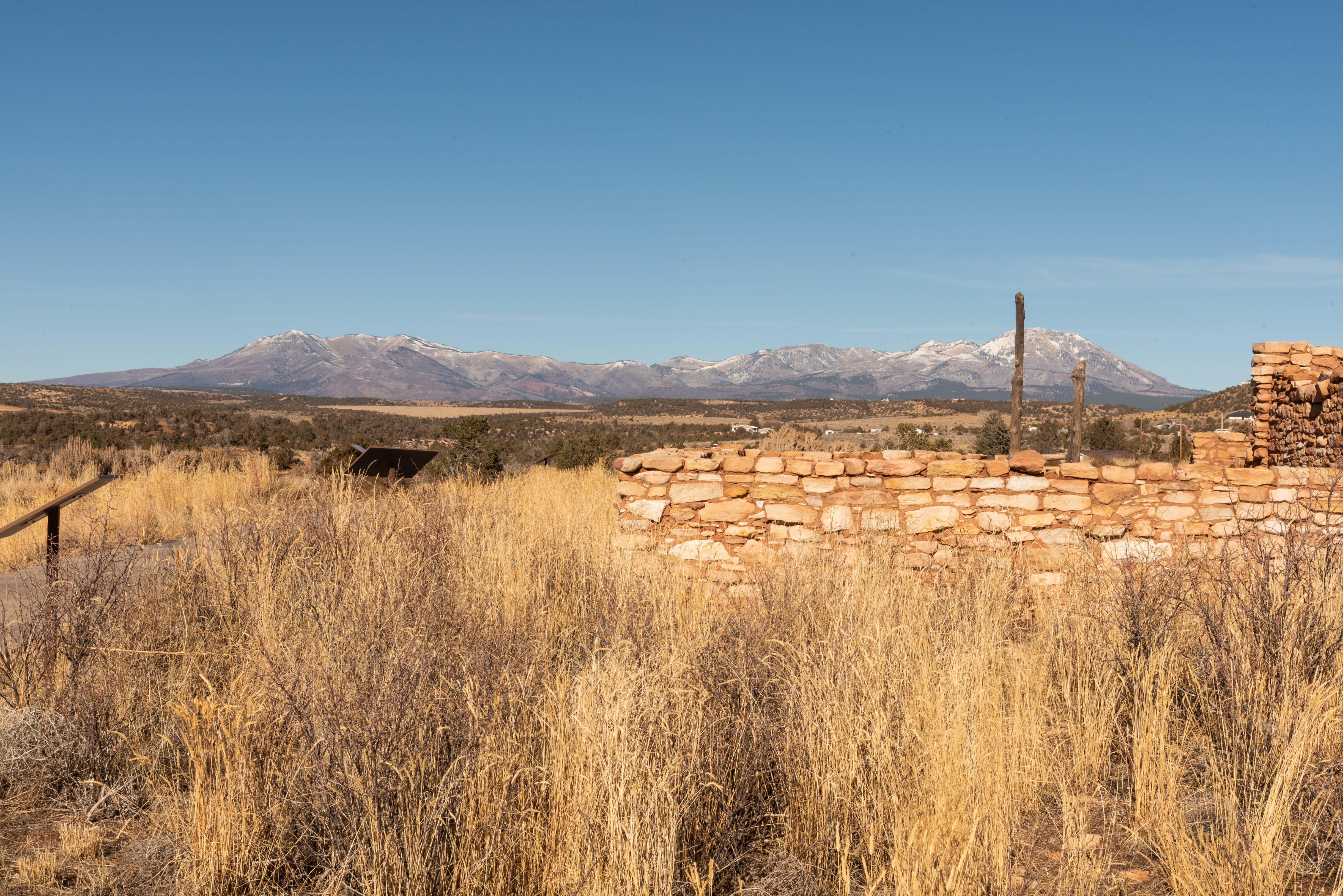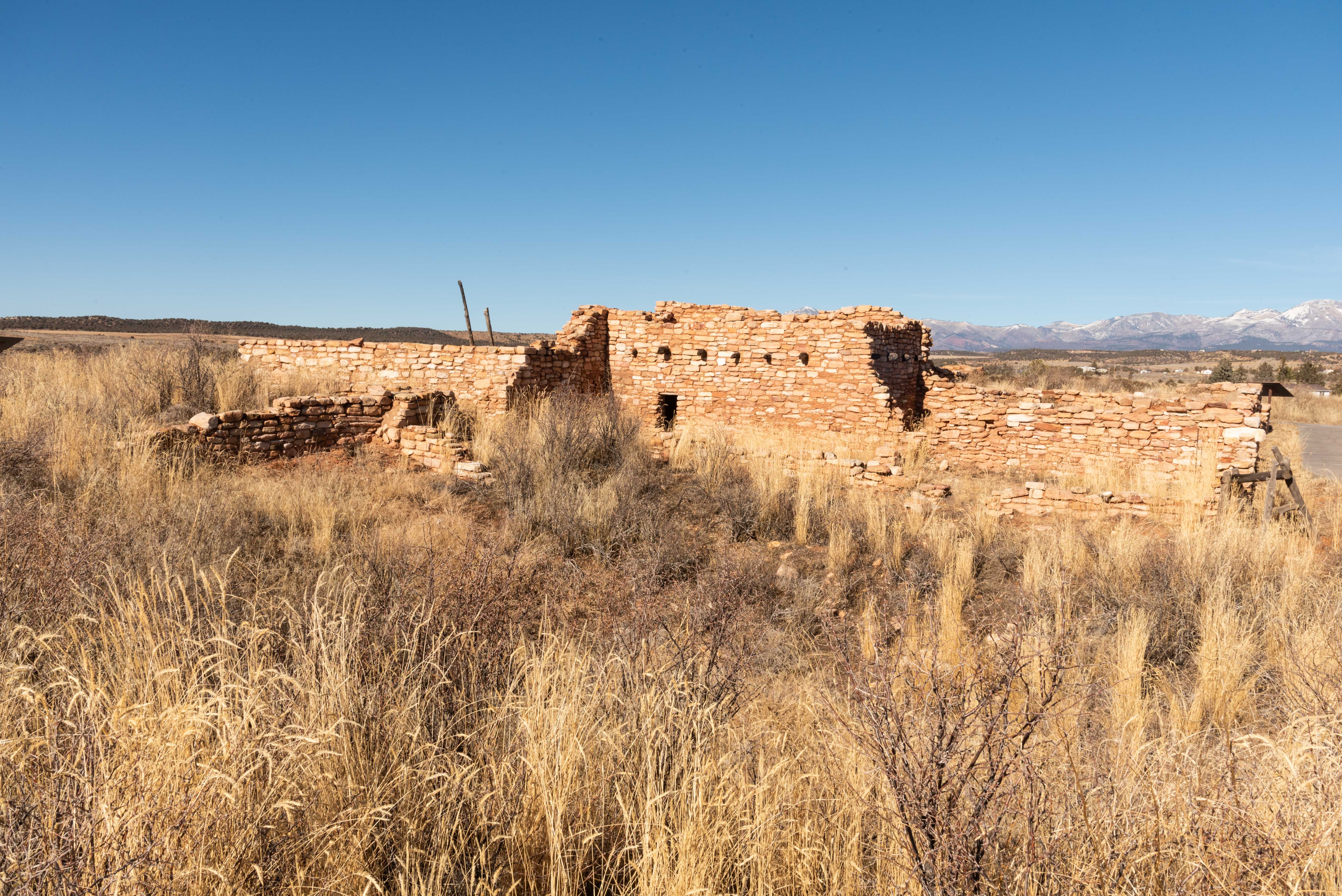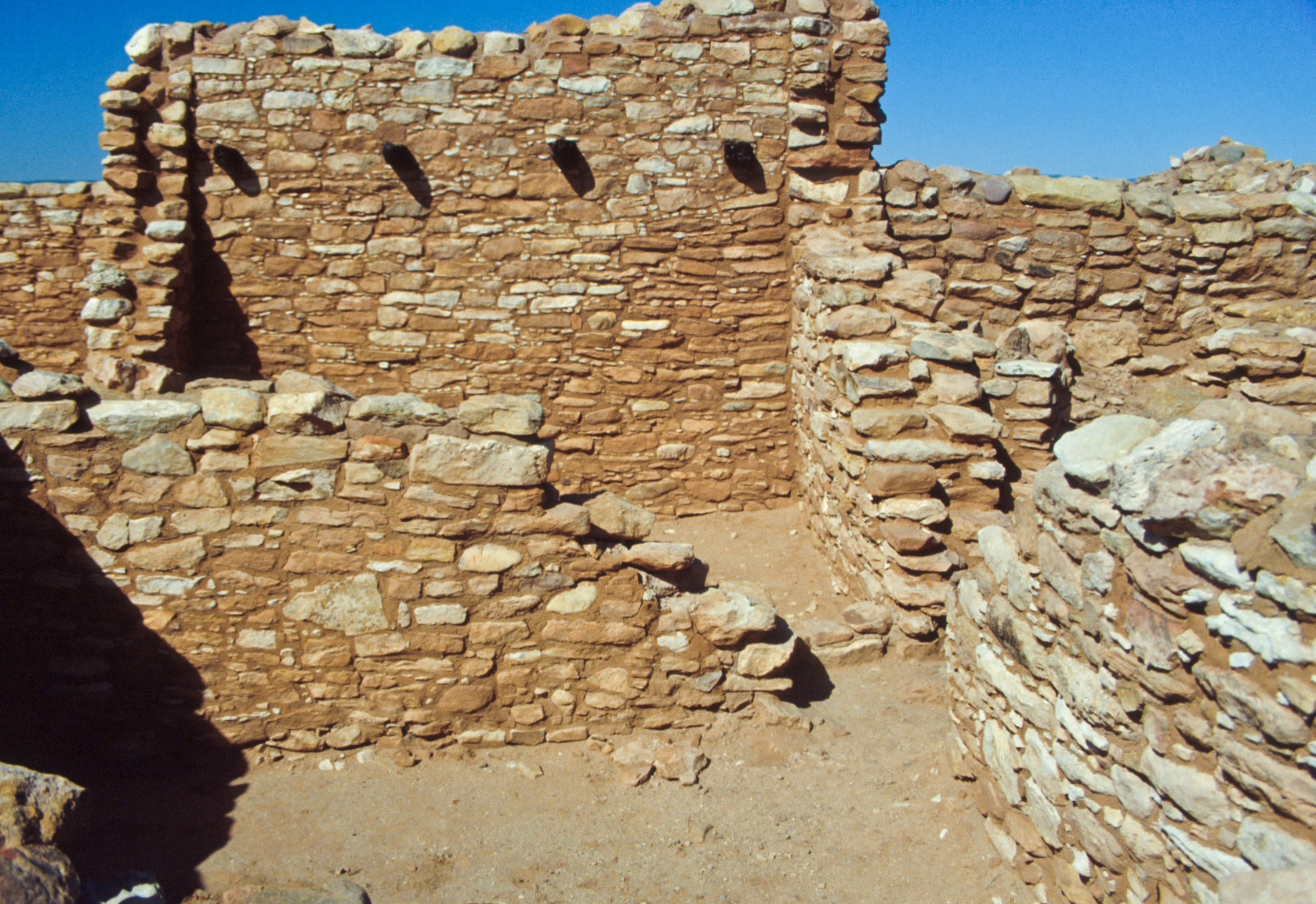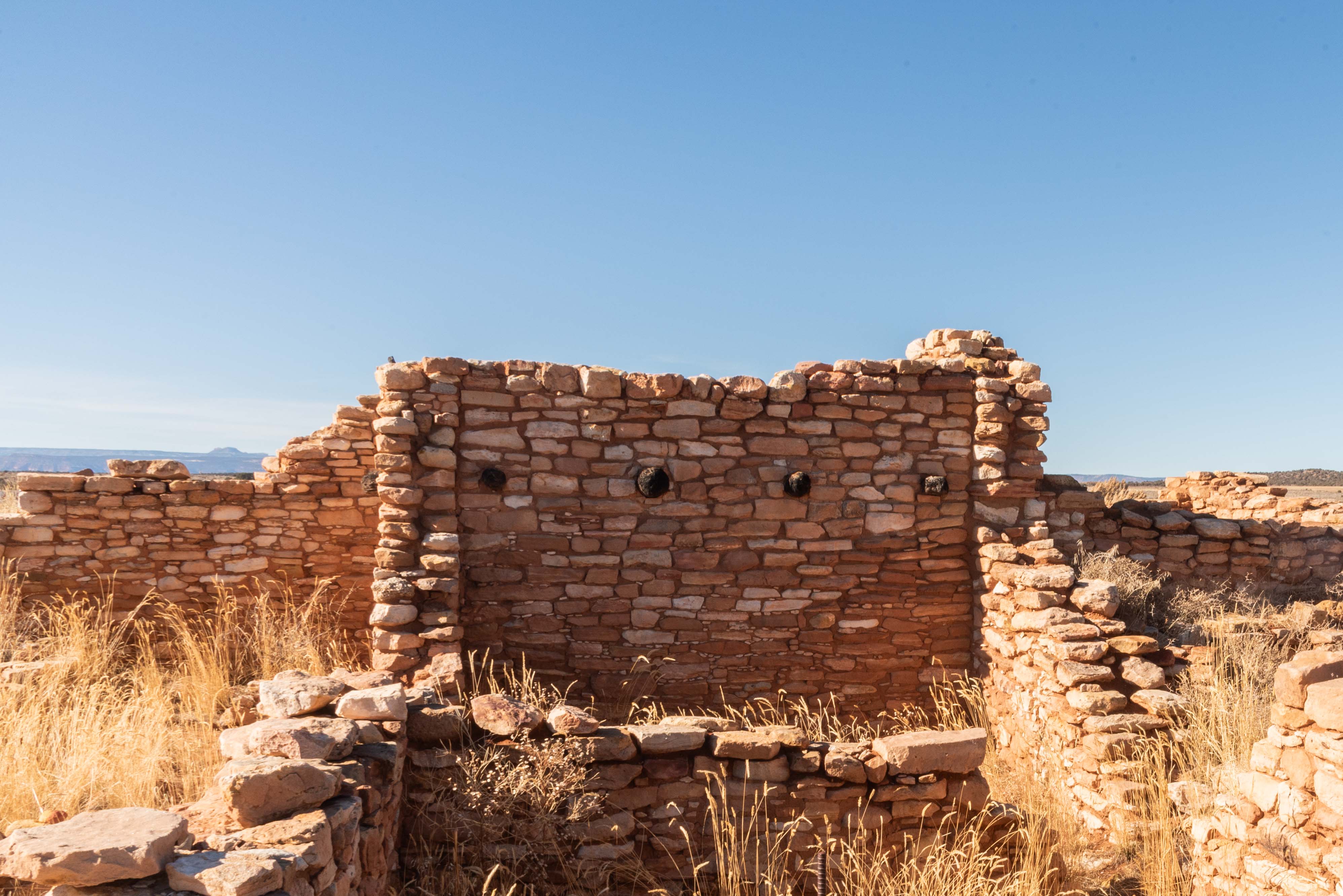Edge of the Cedars State Park
Edge of the Cedars State Park Museum is a Utah state park located
in Blanding. It includes an Ancestral Puebloan archeological site, a museum, and an
archeological repository.
The site was designated a State Historical Monument in 1970 and listed on the National Register of Historic Places
in 1971. The 6.65 acre site was donated to the Division of Utah State Parks and Recreation in 1974 by the Utah Navajo Development Council.
The museum opened in 1978, and the archaeological repository was completed in 1994.
The site is located on the boundry between forested areas to the north and sparsely vegitated regions to the south.
This prompted local cowboys to call the area "Edge of the Cedars". The "cedars" are actually junipers, which are prevalent
in the mixed pinon-juniper forests of the area. The museum has restrooms and a gift shop. There is a small admission fee.
There are a lot of intersting sculptures on the museum grounds that look like 3-dimensional pictographs.
I stopped briefly at Edge of the Cedars State Park in 1992, and made a much longer visit in 2023.
Edge of the Cedars Museum
Somehow, I totaly blew off the museum during my stop in 1992. No photos,
no recollection. So in 2023 I spent A LOT of time in this really outstanding museum.
It houses the largest collection of Ancestral Puebloan (Anasazi) pottery in the Four Corners area.
Edge of the Cedars Pueblo
Edge of the Cedars was a small village, first settled by Ancestal Puebloans
(Anasazi) around 825 AD and abandoned about 150 years later. The site was reoccupied
between 1050 and 1150 AD. Although located some 200 miles from Chaco it was probably
a Chacoan outlier, as the architecture is in the Chacoan style. The village was
centered around a Chacoan style Great House and great kiva.
The "Sun Marker" is a sculpture by Joe Pachak. He designed it to demonstrate the archeoastronomy of Ancestral Puebloans. The sculpture is oriented north-south, and at various astronomical events such as summer and winter solstices sunlight falls on specific pictographs on the interior walls of the sculpture. Very interesting. The sculpture was not there in 1992 when I visited.
Background material obtained from Wikipedia.
Use the form on the Home Page to submit comments, questions, or suggestions. TD Productions Copyright © 2024
